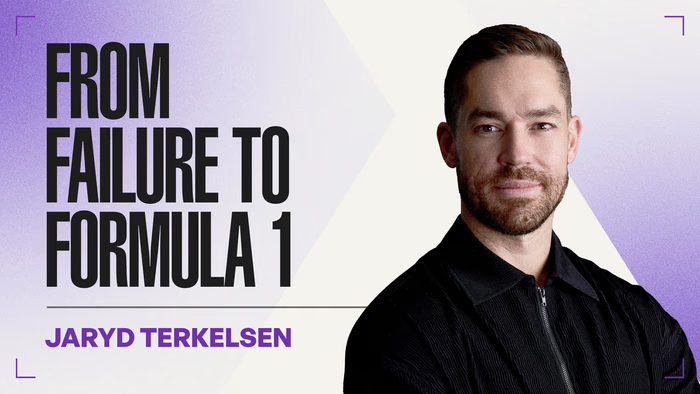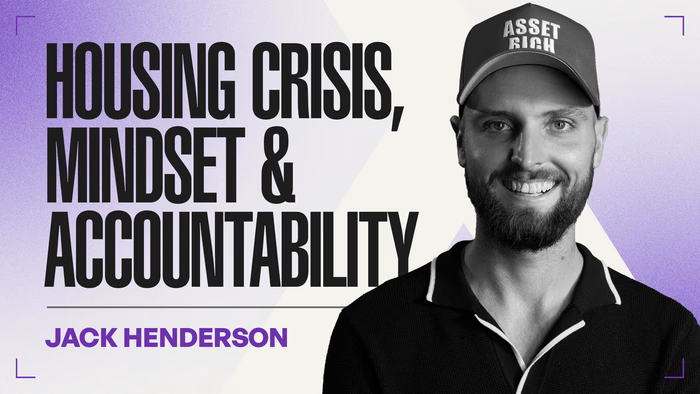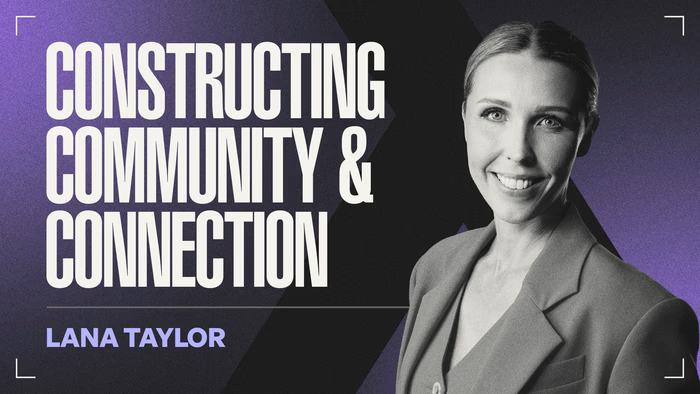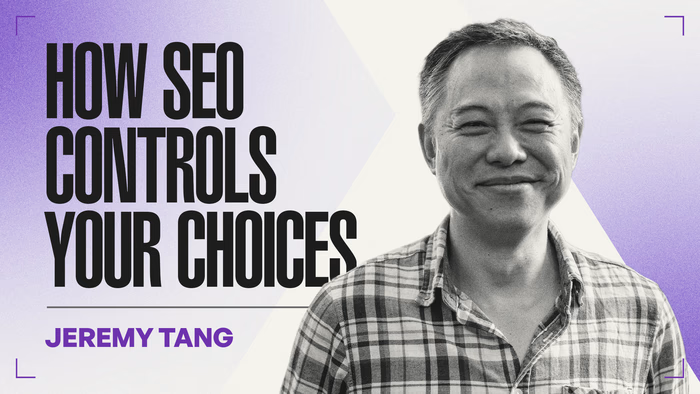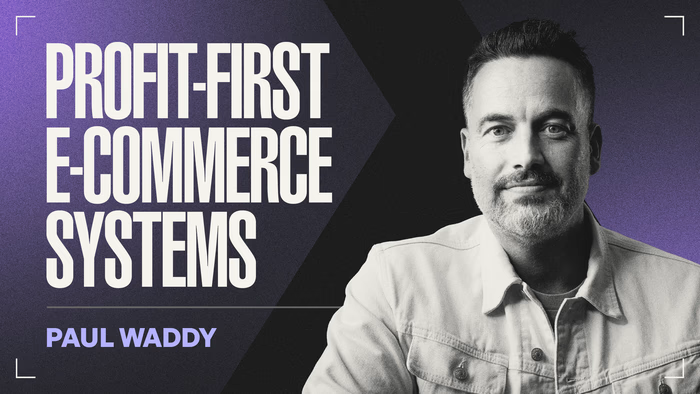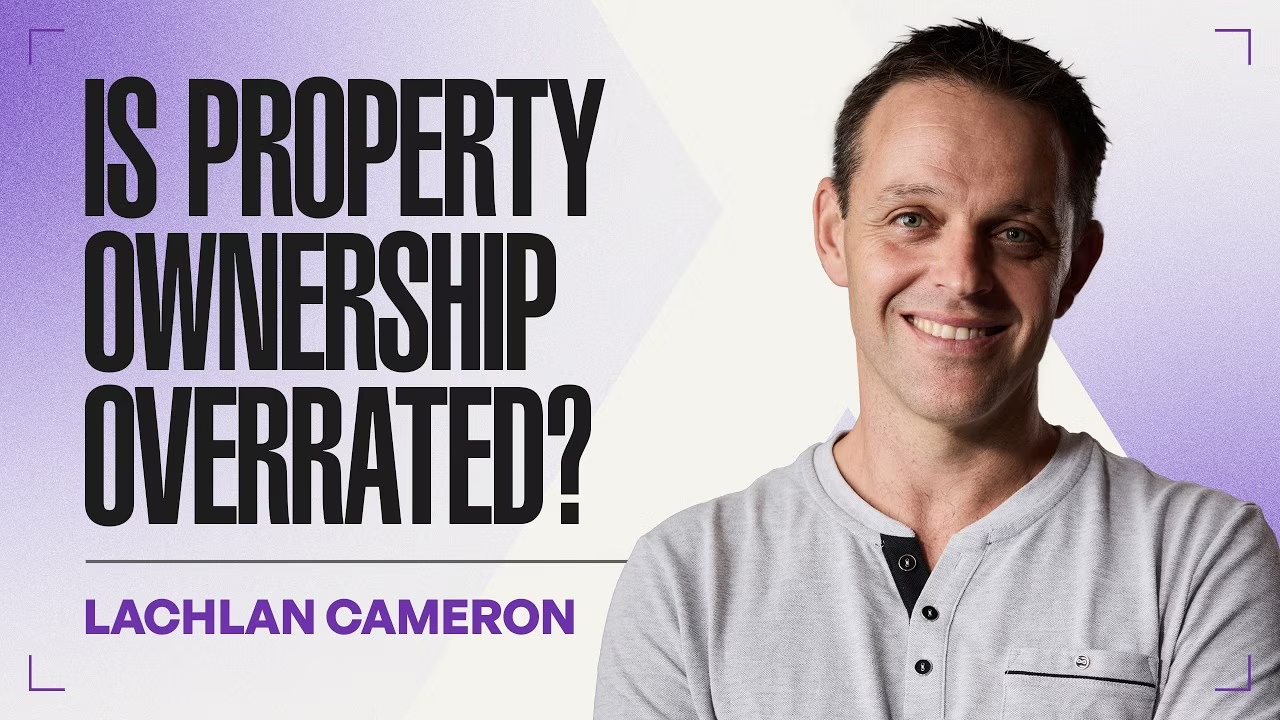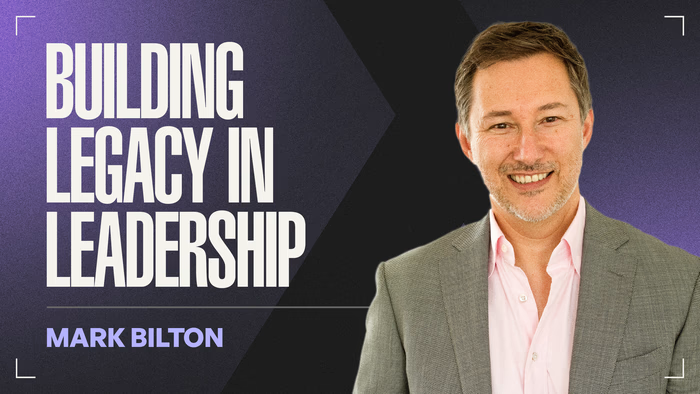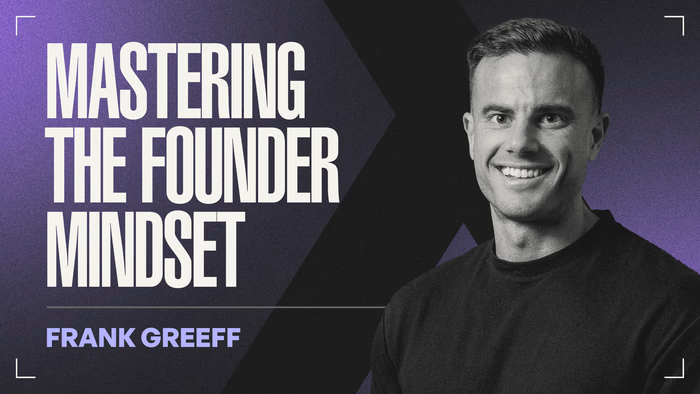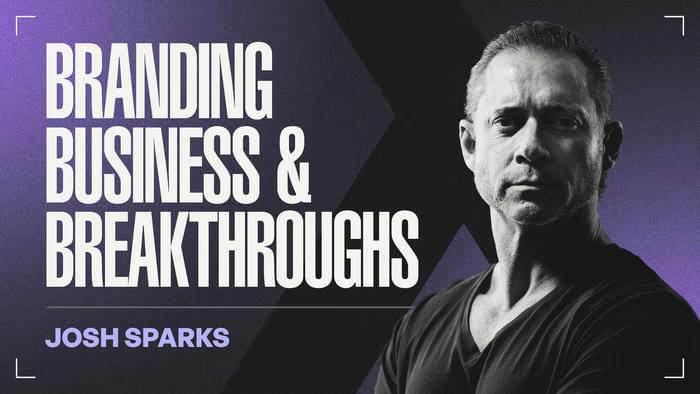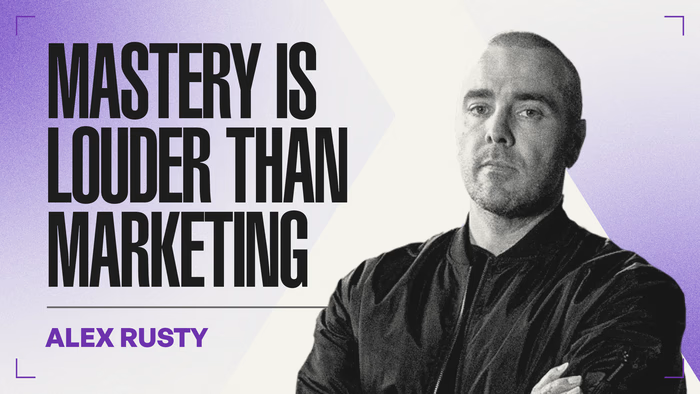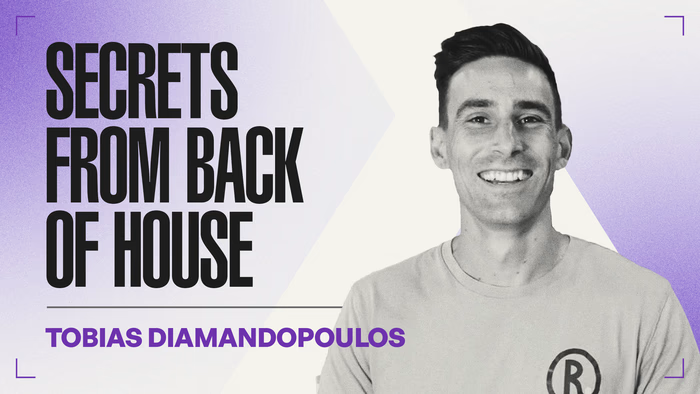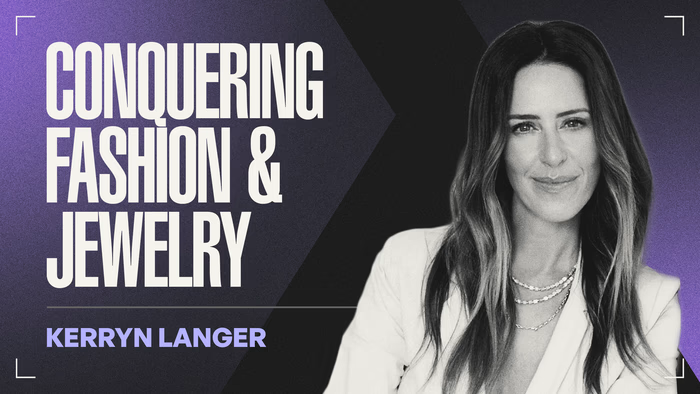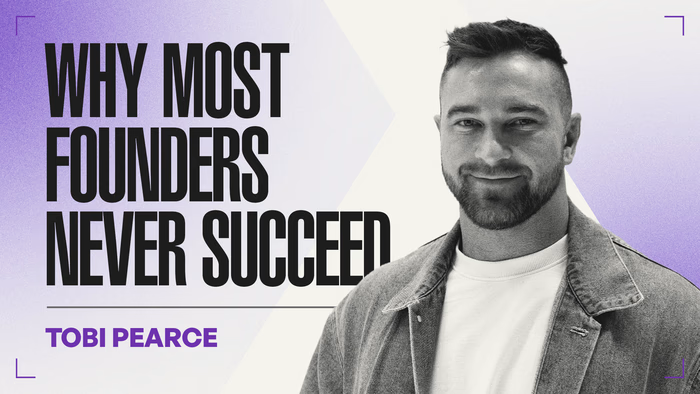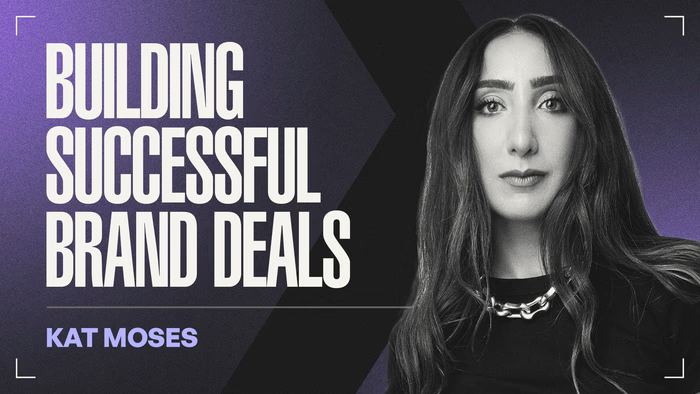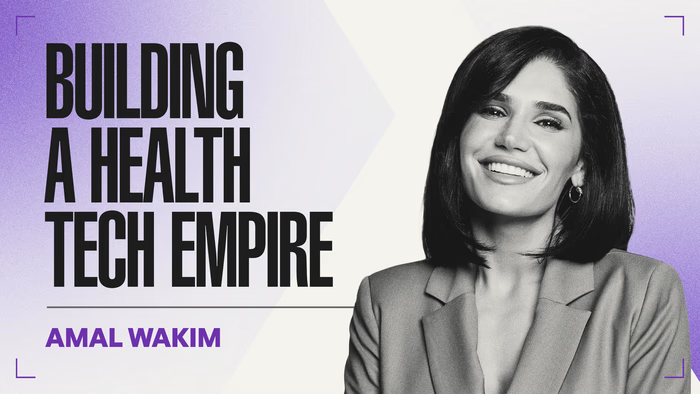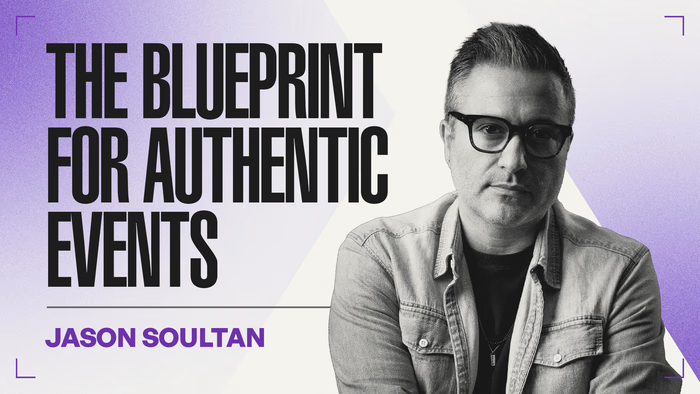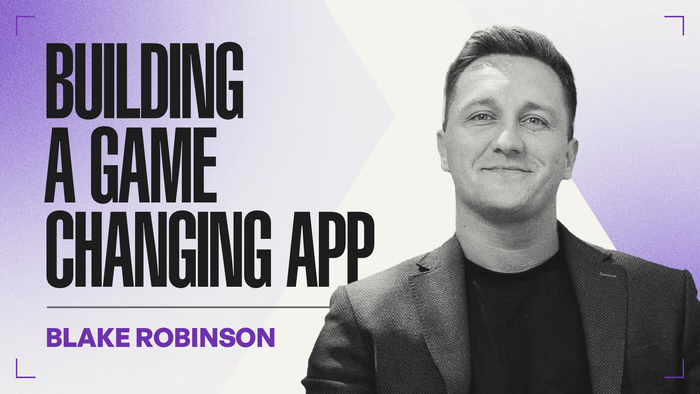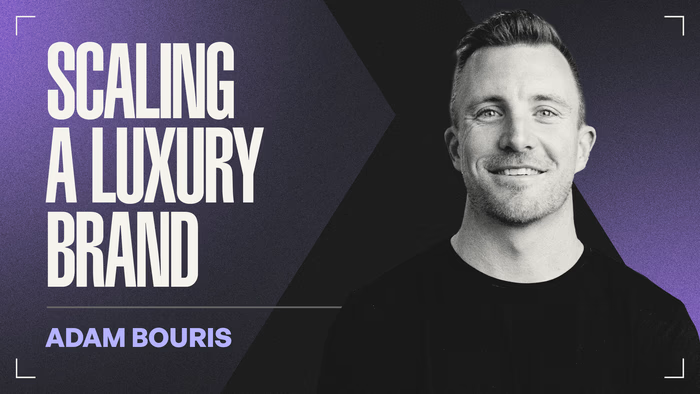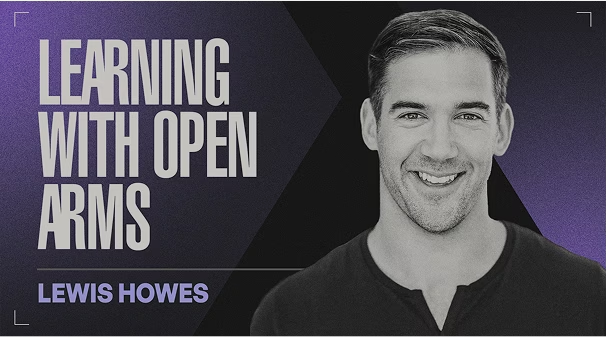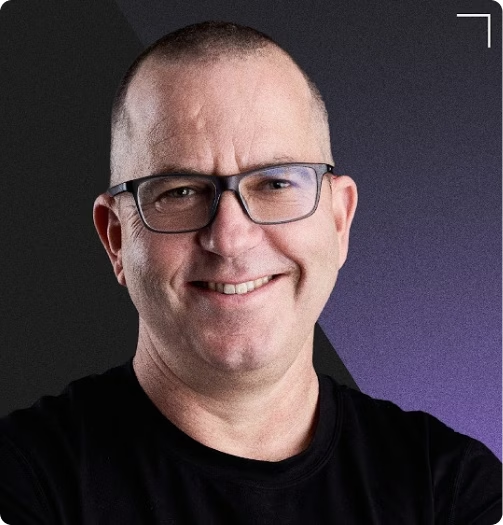


TLDR
Summary
Omer Shai, Chief Marketing Officer of Wix, reflects on nearly two decades shaping one of the world’s leading website platforms. With five Super Bowl campaigns under his belt, he advocates for a marketing philosophy rooted in humility, data-driven insights, and customer obsession.
He explains how user expectations have evolved—demanding professional, always-on websites—and why businesses must match this with flawless execution. Omer emphasizes the importance of running multiple initiatives simultaneously, accepting that some will fail but knowing that successes outweigh losses. Speed is critical: when a channel works, scale it quickly before competitors catch up.
A hallmark of his leadership is deep customer empathy—he personally reviews 100 user sites daily to stay grounded in real needs. He also pushes for the rise of the “full stack marketer”: versatile experts combining storytelling, analytics, design, and execution, with AI as a force multiplier.
On leadership, Omer fosters transparency, collective learning, and incentive alignment to keep teams focused on company goals rather than politics. In high-stakes campaigns like the Super Bowl, he prioritizes business impact over awards, using pragmatic metrics like time to return on investment (TTROI) to guide massive budgets.
Highlights
- Run many bets at once: Multiple projects mean some failures, some wins—growth comes from volume.
- Customer expectations are higher than ever: Professional uptime and seamless digital presence are now mandatory.
- Move fast when a channel works: Scale budgets rapidly to seize short-term momentum.
- Long-term data monitoring enables agility: Years of metric tracking reveal anomalies quickly.
- Reject “generalist”—be a full stack marketer: Versatile, AI-empowered professionals are the future.
- Customer obsession in action: Omer personally reviews 100 websites daily for insights.
- Super Bowl campaigns = business, not vanity: Focus on traffic and ROI, not trophies.
Transcript
00:00:01 - 00:01:05
Now, something I'm fascinated with is that you've led five Super Bowl campaigns. What's the real play when you're managing a Super Bowl campaign? Omer Shai is the Chief Marketing Officer of Wix, one of the world's leading website and digital platforms. For over 17 years, he's helped scale Wix to more than 250 million users worldwide, and has led multiple Super Bowl campaigns. The brand of the company a lot of time is the brand of the people who are running the company. And for us because
00:00:32 - 00:01:39
we are working in the company for so long it's it's easy to be connected to. When you are doing one thing you can be successful only in one thing. But when you are doing 10 things there are let's say three that you are going to be successful. Three that you are going to be so so and four that you are going to fail. Three is bigger than one. Don't be afraid to say I made a mistake. The opposite. Even take responsibility on other people's mistakes because it will help you to push others. And when you
00:01:06 - 00:02:21
are pushing others to do more, they're going to be more successful. What are some of the lessons that you think are really important that you think people need to deploy into their business so that they one day can have a story like what you've created with Wix? This episode is brought to you by Wix Studio. In your 17 years, how has the tech landscape changed and evolved in your experience? the simplicity of and the availability of products like ours and others to the audiences the the mass audience eventually increase the
00:01:53 - 00:03:02
capability of every one of them. I think how difficult it it was for anyone to do things that today that just we are considering as something so easy to do right is let's say a website, today's application. You can imagine things just created and those things weren't available for everyone back then. It also became a lot more complicated right for example to promote yourself so if you used to have like a pizza place back then in the '90s or the beginning of the 2000s, your pizza flyers and so on. Who, you know,
00:02:27 - 00:03:31
promotion today they think how complex is to run the place in order to be considered by others professional, the rating, the reviews, the online presence that you need to have, optimization of everything. So I think that what happens is that we became much more professional in the way that we are thinking about code and products. The visual is so important and also the customers became much so much more professional and expert in their demand. They grow up with tools today, right? We didn't grow up with, with, we
00:03:00 - 00:03:58
didn't grow up with the tools that they're growing up. So, we need to adjust to what they're expecting from us. It's it's not only the product, it's the service. Think about that. Like uptime today, it's 99.99 something like that, right? When we grew up and the product were, you know, lousy like they can be down for so long and people used to it. So like like a website going into maintenance was not an unusual thing uh maybe in the mid you know uh noughties where whereas now it's
00:03:28 - 00:04:30
like unacceptable that a website would go into maintenance mode. Yeah. You don't see maintenance mode anymore. Okay. It doesn't exist. Okay. This domain is not available. Downtime doesn't exist anymore. And think about that like years ago. Okay. It was yeah we are down for for a couple of hours. today. You know, I think that let's say um a a ticket site or whatever, think about the amount of traffic they need to manage that the things that weren't available for us years ago. Today, the
00:03:59 - 00:04:51
optimization of things, the the things that we the way that we are thinking it's like we are taking it out of consideration when we have an imagination. We know that the systems are going to support every idea that we are going to have. That's a really good point. I even think back to like imagine having a business, you know, in like the '80s or '90s. You would have open hours and closed hours and then you'd be able to turn your mind off. I think today founders are finding it difficult to
00:04:26 - 00:05:26
turn their mind off because their website's running 24/7. Content needs to go out every day. Emails need to be nurtured. There's just so much activity that needs to be maintained from a founder. Yeah. But also the opportunity. Okay. Think about the the there are some AI tools and there there is one product that we are working on it. It's like create a twin of yourself. Okay. And think about that that you will have a twin, it's going to be live online and when you're sleeping this twin is
00:04:55 - 00:05:53
going to answer to your customers and giving the level of service that you expect you to get to them like 24/7 while you can sleep. Yeah. Okay. So you're right like there are a lot a lot of there's advantages and there's upsides and there's benefits and I think this is always typically what happens in in my experience from marketing is that whatever is best for the customer typically wins and those that adapt early to that uh or earliest to that tend to have the biggest advantage
00:05:24 - 00:06:31
and and not only that when someone else is offering product like that you cannot stay behind okay because if you will stay behind your customers are going to leave or to go to someone else or they are not going to even to come to you. Okay. So, you need to be first. Now, explain to me at a company like Wix, I imagine that uh you know and all business owners deal with this where it seems that algorithms change and new techniques come and go like SEO was one thing then social media comes in now it's founder-led content. What's been a
00:05:58 - 00:07:13
technological shift that you've seen over the last 17 years that was maybe the biggest challenge uh for Wix to keep up with? I think the Flash. Okay. When we eventually killed the Flash platform and came up with the HTML 5 because the technology was behind in term of the capabilities. So when we started it was free Flash website after that it was stunning website. Okay. So we were really proud about the design capability that we gave to the users. 2012 2015 we removed the world the word stunning
00:06:35 - 00:07:38
because we didn't feel that the product is in a place that we can provide stunning website to our customers because the HTML 5 it wasn't the design capabilities that used to have on the Flash weren't the same back then. So we shifted and after that we could come back to the stunning when the technology was better and this is the strength eventually that entrepreneurship and small business owners need to find themselves, okay? It's like what is the new thing, okay? The opportunity you talk
00:07:07 - 00:08:08
about challenge and I thought only about opportunity because the ones who are capturing first on on on social earn a lot of that, okay? And then you need to understand okay the opportunity is closing what is next what is next what is next? So instead of challenges, I consider it as an opportunity. Definitely what's happened currently with with the AI to be first in in the way you know the the the search is going to change and changing on a daily basis eventually to be explorer to be explorer and to adjust all the time for every
00:07:38 - 00:08:42
change that happens. If you speak from your own experience what what's the benefit of keeping your your perspective from a lens of opportunity versus risk? I so I think that we are a growth people. You cannot create growth without be optimistic and without looking for the next thing that can bring you the growth because how can you do it without that, okay? Like you are going to fall from the cliff because when it's steady you I don't know you're missing something when you are growth we
00:08:09 - 00:09:11
are startup people okay we'd like to create thing we like to we would like to see the users who are coming to a product like that like to see the user happy from what they're creating and sharing it with everyone eventually to create growth. So how do you make sure you keep your eyes on the right target if your focus is growth and opportunity? What are the uh the mechanics or the things that you looked for as like a signal of like we need to invest more time and energy into that thing. So I created for myself and
00:08:40 - 00:09:47
for you know or the company I don't remember it was a very long time ago some metrics we because mother English is not our the first language okay so there are some terminologies that we created for for ourselves for example um the uh pricing page everyone in the world call it pricing we are calling it a package picker okay okay because this is where you're choosing the the package um for example the word cohort for users. We didn't use it back then. Okay. Because it's not it wasn't a term
00:09:13 - 00:10:20
that it was known for us. Uh so we created like mechanism of uh cohorts. Uh 1 day, 7 day, 14 days and 28 days. Um and this is how I'm looking at the numbers. Those are the most important parameters for me. So this is when you're selecting your payment terms and like how frequently you pay. No, this is like the visual of all the business of the company. Oh, I see. Yeah. So, in one day by creation or seven, it's again by creation is the terms that I created. This is the reason that the
00:09:47 - 00:10:57
English is horrible. But eventually is to take a group of users, a cohort of users who register on specific day and to know everything about them. Okay. So for example, how many user registered to a platform? How many of them went to the editor? How many of them created something eventually? how many of them became a premium one and how much the collections that we had from those users and the budget that we spent in this specific time. So this is the way I'm looking at 1, 7, 14 and 28 by geo and by channel and
00:10:22 - 00:11:54
eventually the beauty about it that I can I can understand trend very fast. Okay, because one day and seven days are the short shorter period of time when I when I can identify something that happened, a change that happened and eventually to push our people to invest more on specific time. For example, when Facebook launched a new advertising opportunity, I think it was uh 200 2012 the page post and oh my god like we saw the traffic from test that we did went up in short period of time and we went for
00:11:08 - 00:12:12
I think it was 50,000 run rate to $500,000 run rate in like two three days. Okay. Because we identify something in very short period of time and we knew that you we have opportunity and we are going all in. Wow. So you're talking about increasing your budget 10 times in a in a 3-day window. Yeah. Okay. Now if someone's listening to this as a as a founder of a business, we we hear about this all the time where someone runs, you know, a positive metric on their ad performance, but then they teeter it up slowly. They they
00:11:40 - 00:12:47
incrementally increase their spend. What's the benefit of going all in when you notice something is working? Time. Yeah. You know, I can if I can do something today instead of doing it tomorrow, it's for it's like the way to run a healthy business is to do it as fast as you can. Eventually healthy business, this is how I'm thinking about stuff all the time. And when you trust the it's first begin with the product, okay? If the product is good or bad, this is this is the way to run business with it. We are a
00:12:14 - 00:13:16
product company. We are not a marketing company. Uh we are a product company with a decent marketing department. And when we see opportunity in the way that users are adjusting to the product and willing to pay for that, we need to understand what is the reason for that and then to go all in. Do you see it as the window could close at some point and then you have to find the next way to get that same kind of uh injection of energy into the business? This is the way this is the way I'm thinking about it. It's maybe it's maybe
00:12:44 - 00:13:50
not correct but eventually it's pushed me to take decision very quickly and also understand like my my uh mistake range. Okay. In the worst case scenario, the beauty about marketing in our era is that I can put it on or put it off in a second of decision. Oh, instead of waiting for the billboards to go up, you can you can control all the metrics immediately. Immediately. Okay. So, I actually I didn't take a decision of $500,000. I take I took the decision of the next hour or the next minutes. And
00:13:18 - 00:14:19
eventually, when you understand that, you say, "Okay, in the worst case scenario, I will go down in 3 days." Okay. Now it sounds better for you, right? Less risky. Yes. Okay. So it's essentially it's the way to manage everything like stock trading. You can go in and out anytime you want essentially when the market stock is it's risky, right? And it's not controlled by you. Uh and you don't have the specific metrics is like someone else metrics. Here it was you know more or
00:13:48 - 00:15:00
less. Okay. You you know the cost of the CPM, you know the CPA, you know the the the cost per conversion, you know the amount of money that you can get for specific and if you are in the range go all in eventually as I said three days, turn it off it's okay nothing happened really and and you know it's like I I think it's a strength to say something today I would like to go to be in a 500 run rate and two three days later to re-evaluate it and you say, "Okay, it was a horrible decision. Let's go back
00:14:23 - 00:15:34
to 75, okay? And to sell it like exactly like I sold the $500,000 two days ago because from the information, from the data that I have today, this is the right call." Okay. So, and and and we talked about what it means to to be so long in a company, to be comfortable, to be with good partners. So this is like the privilege that I have. It's like the comfort, the comfort to take decision. Clients want it all. A slick looking website that can run their business and scale with their success. Wix Studio is
00:14:59 - 00:16:11
built for that. Plan out your client's whole site in seconds with AI powered site mapping and wireframing. Then when everyone's on the same page, jump into the creative. Starting off in Figma or in the Wix Studio editor with super precise layouting tools like grid, stack, and flexbox. Go above and beyond the brief with no code animations, custom CSS, and built-in business solutions. And make your whole vision responsive in a click. And there's zero need to break a sweat when clients grow
00:15:34 - 00:16:34
fast. A dynamic CMS with global design settings and reusable assets lets you turn one page into hundreds. Design smoother and deliver sooner. Go to wixstudio.com. What do you think it is that gives you an edge? Because I've met a lot of CMOs that have worked for, you know, this epic list of brands and so forth. And for someone like yourself to kind of come in at the ground floor and build your way to the top, surely you must have, you know, a couple of tools that you tend to rely on or techniques or
00:16:05 - 00:17:13
approaches or mentalities to help you navigate marketing at this level. I'm just thinking about myself as a regular person, okay? And I'm thinking about the users as regular people, okay? Okay. And I'm trying to put myself in their shoes and what they're searching and what they're looking for and what was their experience with the product. And I'm watching from almost from the first day that we launch Wix's first version. I'm watching what are users creating with the platform.
00:16:40 - 00:17:40
So I'm watching what users creating with the platform and I think that I'm okay with numbers. And when when I'm combining those things together, I'm keep telling stories to myself and more stories to myself. This is like a barber shop. This is like a coffee place. This is where they are. This is what they wanted to do. Here is when we did a deliver here. They were were happy with us. I'm reading support and I'm combining to stories to and another story and another story that eventually this is
00:17:09 - 00:17:53
how we build a brand. Would you say that there's some sense of pattern recognition in that because it seems like you're navigating the users's experience, what they're building, and as I understand it on the Wix platform, they're logging in, they're uploading photos, they're writing copy, they're creating icons and selecting all the different widgets and modules and stacking them together to try to make money for themselves. Then you're talking to them, you're conversing with
00:17:32 - 00:18:23
them, you're understanding their pain points. It's it's so interesting that you're spending so much time there, but then you're also looking at the analytics and the numbers. Do you think as a marketer you need to kind of have that balance between both sides of the equation to be able to perform at the highest level? Yes. And I will add another thing. It's consistency. I think a lot of time people are getting bored of the things that they are doing and then they're creating
00:17:57 - 00:19:13
things that eventually they found it interesting but I'm not sure it's so good for the company. Okay. So if you combine all those three together, um consistency is so important. Okay, I open the same report for I think 17 years. Okay, and I know exactly what I need to to see there and the second there is anomaly in the numbers, I can capture that by myself. Okay, so it's like let's say seven days by creation cohort in the US. Yes, I know exactly the budget. I know exactly the amount of
00:18:35 - 00:19:42
users that we get. I know exactly everything and again it's going to both direction. Okay, I can talk with the team and tell them what's happening. Okay, do we have opportunity there or what's happening here? And eventually um I think that part of my role as the company and in my department I'm not the best in anything. Okay. But I am in a very good place to challenge everyone in my team of the things that they are doing and to have a very let's say educated conversation about what they're doing
00:19:08 - 00:20:09
and it's keep them on the toes and we like it. Okay. So another question I have for you Omer is you manage a monumental marketing budget and we can't share what it is but it is significant. How do you manage your team's expectations and the pressure from stakeholders uh with conflicting priorities? Because I imagine you have a lot of people trying to do a lot of different things all at the same time. How do you manage stakeholders? How do you manage the team? How do you make sure that there's
00:19:39 - 00:20:42
some kind of uh economy being played out through such such a significant playbook? I don't know the word pressure. I think first uh and I'm taking all the pressure from my team as well. Um my team needs to take the right decision for the company and not for the stakeholders. Uh they have the numbers they know what is right for the company and according to that I'm giving them the freedom to do everything that they need to do in order to optimize that. You know I'm going back to the the beginning of the
00:20:11 - 00:21:23
company and people used to ask me why I don't give um a bonuses for people according to the results right it's like performance marketing it's like someone is doing something, give them it makes sense like you did a good job here's a reward yeah because I would like them to say no I don't want to invest this money if they think it's a wrong decision So they might get the bonus because it might be good for them but it might not be good for the company. Yeah, correct. I don't want to put my
00:20:46 - 00:21:59
employee is in conflict between their compensation and the business result of the company. So for example, if I'm running let's say Meta for example and I see that my TRI time return on investment is getting higher from the opportunities that we have in search. I would like the someone back then who are managing the Meta to come to the search person and tell him you know I have some budget that I think that you need to use and not myself and if your compensation is based on that it's a very difficult for the nature to
00:21:23 - 00:22:31
do. So you're thinking that you need to have your team's values and behavior match the company not their own incentive because then that can create internal conflict it can create politics and then because you get allocated a budget you must spend it this correct there is one person in the in the company his name is Amit okay and Amit is running our editors and I'm running a lot of the element of of the funnel and every time Amit tell his his him you know whatever decision that Omer is
00:21:56 - 00:23:02
taken I agree with okay because he know that I don't care about politics and I don't care about stakeholders of the company I only care about the company I only care about the result of the company and it's keeping myself like out of everything and just to take the right decision for the business of the company do you think that founders need to adopt this mentality because I I often see that people get entangled into the wrong pockets of why they're doing or why they're operating
00:22:30 - 00:23:33
in their role or why they're running their company. What I'm trying to say here is do you think that people are poorly incentivizing themselves as founders and in roles um and that that most often conflicts with the company and what the company needs to do. So I think first emotional connection to to the product and company is a good thing, right? If you don't hit if you don't have the emotional connection to the the things that you are doing stop doing it as an entrepreneur as a founder as a as a CEO
00:23:01 - 00:24:08
but definitely find the metrics that you're comfortable with that for example our metrics is a TRI time to return on investment and we agree on some months that we are would like to get the money back from the amount of time that we invest in and we know that this number is a strict one unless we decided to move to move higher. Okay. And this is a decision that we can talk about. For example, when we are launching a new product, we assume that we are okay with going to TRI that is higher from our
00:23:35 - 00:24:45
expectation. Other than that, it needs to be strict in line with the decisions that we have in the company. I think it's help and it's going to it's also protect the the founders, the CEO from the your question. I would like to see founders and CEO with tons of passion and also with some metrics that protects of themselves from themselves. How would a CEO, CMO or a founder protect themselves from themselves? What are some things that people can do to help support that? Find good partners first. Someone that
00:24:10 - 00:25:09
they have fun with and enjoy to spend time together. This is the first time and someone who will balance you. I think that one of our strengths that uh one of my privilege is to do only the things that I love and like to do and all the other thing from almost from day one no one else are doing and like a lot of time people are asking me so why are you doing that as a company it's not part of of of the marketing because this is my strength okay and there are some other stuff that is are my weaknesses
00:24:39 - 00:25:37
that I'm not doing right so we build the the infrastructure of the company and the structure of the company according to our our strength and to optimize our strength and so don't think and don't put yourself I think in in boxes okay this is like the CTO this is what they need to do everyone are doing everything in the beginning find the strengths of yourself find the strengths of the partners that you're working with and go from there and then when you double down on what you're great at and what you
00:25:09 - 00:26:15
love to spend and focus your time and energy on what's the reward of that versus trying to do things that in the business that you might hate. First, you can stay at a company for so long. Well, I think you're encroaching on a world record here after 17 years at a tech company. It's pretty significant. Yeah. I I I and I and I don't see the end coming. So, so I think that yeah, it's it's to stay for a company for a long time and also to optimize your strengths. Okay. and to find others, people who running
00:25:41 - 00:26:56
with you for so long and that understand your strength, understand their weak, your weaknesses, understand theirs as well, and you can run for a long time together. Now, you say that your superpower is both speaking to numbers and to stories. How does that duality give you an edge as a CMO? I think it it it is the balance. Okay, I'm I'm keep telling myself stories according to the numbers. Okay. I I I really like sports. Okay. I'm crazy about sports. I crazy about NFL. Okay. NFL, American football. And the beauty
00:26:18 - 00:27:28
about NFL is the combination of numbers, storytelling, and coaches. Okay. the magnitude of the numbers and the storytelling that you can tell from it with the genius coaches of the way that they are running the organization and they're running the playbook and whatever. It's like unbelievable for me. It's like take me into the world of NFL cuz we'll get back to the Super Bowl stuff which is Yeah. So when you when you think about the NFL and you're trying to balance out story paired with numbers
00:26:55 - 00:27:54
and metrics like what exactly do you mean? Can you give us an example of that? Think about what NFL currently are doing. Okay. They're going globally. Okay. If they you're going back back to the sports thing in general. So they are doing what you the Euro the soccer uh used to do uh the expansion that they did globally. So currently they're taking the story globally. So they are going to have games. They're already having games in Brazil and in Europe. Next year they're actually going to
00:27:25 - 00:28:31
Melbourne. I didn't know this. Wow. Yeah. 2026 the Rams are going to have home game in Melbourne. So they're exposing themselves globally and they have Netflix series. Okay. So they have the quarterback series and they have the wide receiver. It's like quarterbacks and wide receiver are position in the game, right? And it's almost like a Drive to Survive with F1. And uh you know, I'm a I'm a big F1 guy. And I I just I I realized the moment that they went live with that documentary, it created so
00:27:57 - 00:28:51
much more drama when you watch the live sport because now it's not just seeing cars go around a track, but like that guy hates the other guy and there's an argument and this, you know, this team hates that team and there's a rivalry. That story enriches the experience when you watch the sport. Exactly. and and and you know F1, I'm not a professional in F1, but the thing that I know is the times that they need to replace the wheels. This is how you know if the team is good or not. Correct me
00:28:25 - 00:29:25
if I'm wrong. Right. Yeah. If they're really quick, they're doing well. If they're slow, there's something wrong. And this is the number, right? And the numbers of of how fast is going to take the laps. And then they had the backstory and the story. It's a combination of numbers and the storytelling. and Netflix Netflix and what they're doing and Amazon with uh with the TV and the behind the scene uh and the emotion of about sports is take them together and eventually it's like
00:28:54 - 00:29:48
new world for you, new opportunity. So when you think about numbers and you know what people are calculating which is their CAC or their ROAS or their ROI and all the things around that when you think about storytelling what are some of the things you should look for if we're if we're able to immediately make sense of numbers how can uh founders and people that work in C-suite teams begin to look at story like how should we look at story and and how does that correlate back to numbers and
00:29:22 - 00:30:20
brands? So a lot of time I would like to create things that I'm proud of. Okay. And I would like to consume. I think about myself as a customer. Is this something that I would like to see? This is something that I will be interesting to watch and eventually also did we create something that I'm proud of. I think the level of of creativity needs to be in the level that I'm proud of things. Okay. It's not only me, right? I'm saying me, but it's my team as well. So not proud of the
00:29:50 - 00:30:54
numbers or the ROI but proud of like I created something significant that meant something to people. I create something beautiful. I create something beautiful and the story is coherent. Okay. And there is structure for it but at the same time I follow the rules in order to optimize the numbers. I created something that I proud of and it's like the mix and match between that. Okay. Because we know exactly today what needs to be the first 5 seconds, the first 12 seconds, 28, 35, we know exactly what needs
00:30:22 - 00:31:24
to be what what is the balance between everything on those things and we need to follow the rules but at the same time to keep the creativity so I would like to someone like Mr. Beast, for example, who's ruthless with these numbers, but continuously trying to break creative rules on how to get attention and then how to govern that and then how to filter that back into uh the economics around how to make things go viral for example. Yeah. But we need to remember okay Mr. Beast and what he did he created a
00:30:53 - 00:31:54
personal brand about you are focusing a lot of personal brand here and you're doing amazing job but you know running a personal brand and running brands today is totally different okay because a lot of time you don't want to interact with brand but you would like to interact with personal brand but how you combine between the the two how you are using for example the founder okay of the company with the brand of the company okay because those A lot of times those brands are not the same. There are
00:31:24 - 00:32:19
two different brands but they need combined together in order to optimize both. For example, we are not so good in being out there okay when we know that this is something that we need to improve because when we position ourself for example the creative brand of ourel we are going to have a better result for the company. So for example, if you will go to founders, to CEOs out there, the ones that are doing very good job, they're managing their brand, they're managing the brand of the company and
00:31:51 - 00:32:52
both of them need to dance together eventually to support each other. So when you're thinking about the data and the storytelling, let's say, you know, for example, someone like Mr. Beast who is a fantastic storyteller. Um, how do you use the data and allow it to drive a positive outcome without allowing it to kind of get in the way of diluting the creativity or you know can can you overindex on the numbers and does that hamper the ability to create something that is beautiful or mean something?
00:32:21 - 00:33:18
Yeah, I think it's even it's even more than that. Okay, because and we talk about a lot about the changes that we saw in the in the platform and the way that we the changes that we see in the way that we are managing people and and company. So think about that that it used to be that we knew exactly the amount of budget that we spending on specific ad and the amount of return that we have. Okay, this this metrics almost doesn't exist anymore. Okay, what do you mean by that? Because a lot
00:32:50 - 00:34:02
of people still think that way. Yeah, but the tracking metrics. Okay. The tracking methods are much more difficult today. Okay. The way to follow cookies, it's much more difficult. The changes that happen and now suddenly people that did only performance, you know, they don't know how what to do. So you need to understand how you running building marketing budget like in balance according to how to optimize results and not to optimize specific adword. Okay. So our work became much more difficult
00:33:25 - 00:34:30
and also the stories that we again I have the priv the privilege with the partner that I work with and they trust me that I'm doing everything as the best that I can but there are some CMOs and we talk about the ones who moving from one place to another I think a lot of time the expectation that their partners have for them are not realistic okay and if they are not realistic it's better you know not to stay together. Okay. And a lot of time the problem is not the CEO. I think a lot of sorry a
00:33:59 - 00:34:54
lot of times it's not the problem the CMO. The problem is the CEO expectation and the board expectation. I would agree with that because I think we've seen so many cases where we've done branding for a company and they might have a team of one or two people in their marketing division but they're like a $6000 $200 million business that have sales teams and like product development teams and they have like a couple of people trying to manage all the marketing for this significant enterprise. Do you think
00:34:25 - 00:35:38
that most CEOs are overestimating what a small team of CMOs and marketers could do? I love small teams. Okay. So it's not about the small team. It's about what expect what they need to create. Okay. So it's different. Okay. Because today with all the tool I think small team can deliver things very fast. Okay. And there is a huge advantage of of of small teams. So I think it it it's more about about the expectation and about a lot about um the measurement because measurement became much more difficult
00:35:02 - 00:36:03
and you when you expect from specific measurement that today's CMO it's very difficult for them to develop what is the bandwidth that you're giving them in terms of decision maker that they need to do in order to optimize and how fast and how many mistakes you allow them to do. Okay? Because mistake you learn from mistake. You don't need to go back to mistakes. But if you know it's something that it's part of our culture. Okay? And when you're doing one thing, you can be
00:35:33 - 00:36:43
successful only in one thing. Okay? But when you are doing 10 things, there are let's say three that you are going to be successful, three that you are going to be so so and four that you are going to fail. Three is the big is bigger than one. Three times one. Okay? And you cannot be at the three times if you are not going to give yourself a room to fail. So for CEOs and board, give the opportunity for the CMO to fail. Now you have a term where you talk about to that point that you like to create a space
00:36:08 - 00:37:09
where people can do a lot of things and not be so niched down that they're isolated into trying to tackle one issue. you have a problem or a bone to pick with the term of a generalist versus someone who's like niche or a specialist. Do you mind unpacking your bone to pick here and and what people should think about this instead? I hate this word. I hate it. You hate the word generalist. I hate this word generalist. You know why? Why? Because the first thing that I'm thinking about generalist is mediocre.
00:36:39 - 00:37:49
Mediocrity. Yeah. Yeah. Mediocrity. Okay. And I believe that people who can create more are specialized in the things that they are doing and are not generalist, they are not mediocre, the opposite. Okay? Because when I can do numbers and I can do storyteller and I can understand and I can analyze and I can understand what are the next thing that I need to do and to do reiterations with the content and to create better and better thing and to analyze after that I'm an expert it's almost like chemistry you're
00:37:14 - 00:38:16
combining different ingredients that can combust in unique and different ways like taking analytics and storytelling putting them together to create something different we are in a place that I think every position in the marketing specifically I believe in other places as well are going to be changed okay because I don't believe that you are going to be just a marketing analyst I don't believe that you are just going to be content writer I don't believe that you are going to be just a designer for example today in my
00:37:45 - 00:39:03
team there are designers that the homepage of the next Wix Studio version created by only designers Okay. And not content writers and not product marketing. They have the room to come and to create a to z project from idea to be up and running. I believe the content writer okay don't need to put himself in a place only to create something or to modify something that someone else gave them. I would like them to do more. I would like them to tell the story. Um it's going to be difficult for everyone.
00:38:24 - 00:39:45
Not I'm sorry. It's going to be difficult for I I would say for most of the people for most of the people it's going to be difficult to adjust to do more I and and for me I this is something that I just understood I have to say in the last two weeks. Okay. Because for me I said you know I could do something like that just to write headers now I can go I can research I can talk with the user I can create the content and also create um the header and after that to analyze and everything I can do everything by myself
00:39:04 - 00:40:11
for me it's like blue ocean of of new world that I can create and just in the last two weeks I understand for most of the people, they're afraid of that. Why do you think people are afraid of being perceived as a generalist or as someone who's like a quote unquote a jack of all trades? You go back to the word generalist. I hate it. I'm using the term full stack marketer. Okay. So, let's replace for the remainder of today's episode, instead of saying a generalist, we're going to deem
00:39:38 - 00:40:52
it as a full stack marketer. Yeah. And before we move on, do you mind defining what your definition of a full stack marketer is? Full stack marketer is someone that can do much more than what they think that they could do. Okay? Like no boundaries. Okay? They can create um the brief and after that take the project almost to the end. Okay? Think about that. Unless you're creating very high high video like high production quality videos. Okay, that is also something that the gap is going to close very
00:40:15 - 00:41:37
soon. You can almost create everything by yourself. So the room for them to start from brief to be up and running with no boundaries. Okay. To analyze the data, to take decision, to do everything by themselves with tools that we as a team need to supply to those full stack marketer for them to work with. Okay? Because I still don't know what is the role of manager anymore. Okay? So it's not only the role of full stack marketer, it also what is the role of manager? Because the beauty about the
00:40:56 - 00:42:06
full stack marketer that they don't need to have another cycle of feedback and another cycle of feedback of the things that they are doing right think about that like I remember the time that I wanted to do something okay and I gave you a brief and after that it took the team let's say three weeks to come up with 10 ideas that they think that this is what I want to hear. So they're they're trying to interpret your brief and in your mind you know what is that you're looking for. You give a brief,
00:41:32 - 00:42:23
they spend three weeks to make it, they come back. It's not and and I think what happens on those three weeks, okay, they are going to their team leads, they're getting feedback from him because he or she think what I think. Okay. And think about the frustration and eventually team leads that maybe two years at the company or have two years in experience are telling someone else what is good and what's in I don't know it's horrible experience and then they're coming to me
00:41:57 - 00:43:00
after 3 weeks and I'm seeing everything and what I'm saying full of crap. I hate everything. Okay, I lost three weeks already. Okay, from the ideas that I had and then they're coming back. They're going back and they're coming back let's say to me after two weeks with three ideas. Now it's okay. the ideas one idea is okay but we lost already we are in five weeks in the process and now let's start working in creativity in where we would like to do so I believe that with smart tools and with a
00:42:28 - 00:43:46
different kind of working process those five weeks can become a week and in three week we you can be up and running with projects from idea to creation I have an I have an idea have and have some examples for you. Okay. So I think it was two weeks ago I talked with one of my partners that I'm working very close with on some products that we have and we said it was Monday. We said you know let's do a competition about back to school activity. We would like people to create application of
00:43:08 - 00:44:24
back to school but wow it's a great idea. The decision we had like the brief that we gave was Monday, we were up and running in Thursday with everything landing page, a social post, a rules of how to run the activity more and more on those three days. This is something that it was very difficult for for us to do to create three four years ago and this is the adjustment that we are doing. Full stack marketer, no generalist. Okay. So like as a full stack marketer, let's let's I just zoom in on that for a
00:43:46 - 00:44:47
moment here. When you think about someone, let's say we take different art forms. Let's say we take copywriting, uh graphic design, um coding and and programmatic ideas, UX, UI, maybe photography, and then package design. Let's just say these are all different fields of expertise that one might quote that they need specialists in. What's the argument then if someone has little to no knowledge of each of those? They've got, you know, shallow knowledge or not much insight. Do do they need to
00:44:16 - 00:45:27
expand a little deeper into having some breadth or some wherewithal in each silo to be good as a full stack marketer? I think that they need to be good in order to judge what is a good product and what isn't a good product. So they need to be able to identify good packaging, bad packaging, good copy, bad copy, good design, bad design and to make things that they are getting to be better. Okay. So you don't need to create it. You need to absorb it to understand what is the opportunity, what is the
00:44:52 - 00:45:58
strength, what is the weakness and to work on the strengths in order to take it to the same level. And we as manager need to create the tools that will will help those super-marketers okay to identify what is good and what is not what is in brand and what is not in brand what are the things that work for us and what the things that didn't work for us before like to create I'm calling it the brand mind the brand mind what do you mean like a place where the full stack marketer can work with tools that I'm
00:45:24 - 00:46:34
going to create for them in order for to know what the chances that a project like that is going to be successful and after that the to implement the result inside the tool that eventually everyone are working with the mind in the mind of the brand and the work process is so much easier. Think about how difficult is to bring new team member to join the team to work on something okay product marketing okay how to approach what are the users are doing what are the successful project that we did before what we learn etc
00:45:58 - 00:47:12
it's so difficult today okay but it used to be today with smart tools it's much easier to do so I can bring new employees super smart one to use and to be up and running in in the let's say in the working force very quickly and to create things that we are proud of. So everything is like data storytelling proud and to make our users and employees better. So the combination of all these ingredients and knowing how to use all the ingredients together is a more master stroke than someone who's a deep
00:46:36 - 00:47:51
specialist in one thing. I I again I don't agree that the that the one who create the orchestra is not specialist. Okay. When you say that I I I don't feel good. Okay. I I can move. You can change the analogy. Go ahead. I I can move because I believe that they are specialized. Okay. And they are specialized in understanding thing. They are tools that making them to understand how to do and what are the decisions that need to be made. Okay. But they are professional. They're expert in what we are doing. Okay.
00:47:14 - 00:48:19
Remember I said before that I'm in the place that I need to challenge my every one of my team members of the thing that they are doing. It's going back to almost the same place. Okay. and and we talk about the time from brief to ideation to brief. So today I'm not giving just the brief to my team. I actually can create the brief with some tools and to take them even to ideas of how to fill the brief that I gave them. They can work on that. They can make it better. They can come up with different
00:47:47 - 00:48:48
solution but eventually they can understand. Okay. And to shorter the period of time again we are talking about time sensitive everything in our world is a time sensitive opportunity that I have today maybe tomorrow is going to be close and you need to work in this way and every day that you are missing totally makes sense to me because I imagine if I'm trying to brief a team let's say I'm Skrillex and I'm like I want this b uh I want this drum beat and I want this synthesizer and I want this
00:48:17 - 00:49:04
BPM and I want you know these vocals and and I want the album cover to look like this. And then you're sending the brief out. Then you're waiting, you know, weeks for this to come back. Then you listen to it and you're like, "No, this is wrong. I want to change this." You send it out again. You're saying that the ability to shrink and collapse time and have more speed allows you to be able to capitalize on more opportunities and then one begets the next where you can kind of compound these maneuvers
00:48:42 - 00:50:04
together. Correct. And I think that and we talk about my strengths for example. I'm not looking to have only strategic conversation. I love tactics. I think that you are building the strategy from tactic things that you are doing. Strategy are the things that uh company changes maybe once every two three years. Tactics are all the other things and a lot of time C-levels spending time on strategic conversation. Okay. I've seen it a lot. Yeah. Yeah. And I really get bored from conversation strategic conversation. I
00:49:22 - 00:50:22
like to be in the data in the campaign the first five seconds. Uh the storytelling that we have how we are moving fast to the next campaign. Those are the tactical conversations that I would like to be in part of and I believe that eventually strategy is building from a lot of tactics. How do you think founders and people in C-suites can be more tactically led and not be bogged down in the strategic conversations don't put themselves in a box that what does it mean to be a C-level? Okay. I
00:49:52 - 00:51:16
don't I don't know what C-level means. Okay. Okay. Because you know there are like the 20 startup of 20 people that have like six C-levels okay I have team members in my team who is managing 120 people okay I think he's much more C-level than them in term of the broader of decisions that need to be taken to manage etc. So I think that titles are You think titles in companies are Why? Okay. I hate titles. Uh because because when you are C-level, people are expecting there are some things that
00:50:34 - 00:51:55
people are expecting you to do and there are some things that people conversation that people are expecting you to to have and to be part of and it's it's Okay, really the things that are matter or what are your responsibilities of the company? We have C-levels in the company only because we are a public company. Okay. Um except to C-level everyone in our in our company can choose whatever title that they have that they want. Okay. For example, every title that you see relevant to Wix on LinkedIn is a
00:51:14 - 00:52:30
title that people got for themselves. Really? So you allow people at Wix to choose their own job title. Exactly. On LinkedIn on internal conversation, the titles are your responsibility of responsibilities of a company. Oh, I see. So you have internal dialogue which is like these are your responsibilities things you must be you know uh for example in the company head of performance marketing okay or head head of community team okay on LinkedIn you can be senior senior director of something okay yeah
00:51:52 - 00:52:55
okay or senior VP because this is the thing that we wanted to eliminate when you have you know our company have director and then they have senior director and then they have VPs and they have senior VPs. Okay. Uh so I'm I I'm not in that. I don't care about those things. I just would like the thing to be done. Okay. So then I want to come back to the full stack marketer concept because I think this is fascinating. Now you know the quote a jack of all trades is a master of none. Do you know the full quote?
00:52:24 - 00:53:27
No. This is the full quote which I love is that a jack of all trades is a master of none but most often times better than a master of one. This is exactly right. This is the full quote which is which is to your point. So I think people read the first half of this quote and they don't realize that there's there's depth and there's poetry to this. Now do you agree with this or do you dismiss this? Of course I agree with that. Yeah, I totally agree. And again, I think that the the AI tools that today can help you
00:52:56 - 00:53:54
and to be like your right kick. Oh yeah, they can kind of co co-pilot with you. It's co-pilot with you is like they can bring yourself. So it's only not only one of more than what you used to have. Currently the your weaknesses are less of showing. Okay. Because there are tools that helping you. Yeah. Yeah. So, like if you're weak at uh let's say writing emails and they're the bane of your existence, but now you kind of know what message you want to send in an email, you can put that into
00:53:24 - 00:54:23
Chat GPT or some kind of LLM and then it can spit out an eloquent email and then you can send that correct for example and it covers your weakness and and when we're thinking about let's articulate ideas that you have okay I'm taking it like email is something is a is a small task okay but when you are running a department you're running a company and you would like to articulate ideas that you have and you understand that your ideas to bring it to to write your idea is something that
00:53:54 - 00:55:08
you have weakness in that and it create a lot a lot of challenges through the funnel of what happened later because a lot of people don't understand what exactly you mean okay and they try to interpret what you your idea maybe was okay suddenly you can just sit 10 minutes, okay, to articulate exactly what you want and to come with a brief and you spend like 10 15 minutes in that and even less. Okay, so use advantages and protect. It's almost like a protection of your weakness. Yo, my name
00:54:31 - 00:55:33
is Dane Walker and I am disgustingly obsessed with branding. I had to figure out a way to do branding every single day. So, I branded myself. Then I started my agency Rivalionary and hired a team of branding mavericks hellbent on creating brands so good that they'll make your competition wet their pants. So here's the thing. You want your brand to go viral and Rival makes brands go viral. That's why we're offering you a free 30-minute branding session to get an expert's opinion. If you don't believe me, the proof is in
00:55:12 - 00:56:18
the pudding. Here's what clients have to say about Rival. Rival is trusted by brands like Nutrition Warehouse, Light My Bricks, and Voomi. So, if you want to absolutely smite the competition and make your brand go viral, hit the link below and book in your free 30-minute branding session. Okay. So, Omer, you have a concept called the time to return on investment. Yes. What is it? So you're taking the money that you're investing okay and understand how many users you got in specific time like the
00:55:45 - 00:56:50
cohort building a cohort from that and then you are understanding very short period of a time when you are going to take the money back from that. So it used to be a lot of company used to use the term um lifetime value. Yeah. What's the LTV of the client? So like for example, if uh you know if a client you have to pay $500 for them to use the platform, how much money will you make back over two or three years or something? So it's horrible. It's horrible measurement lifetime value. I don't believe in that because
00:56:17 - 00:57:30
it doesn't help you uh to build the to find how your business is health the health of the business and second it's very difficult to be aggressive because the estimation like when we are getting the 100% of what we investing you can move faster what do you mean by that let's say if I'm getting the money 5 months after I invested it so instead of calculating how much I'm beginning to I'm going to get from these users. Okay. So, it's much faster. I really almost don't care about how much I'm going to
00:56:53 - 00:58:00
get after those time that I got the 100%. I do care. Okay. Because of course if was everything was churn after that I'm not building something healthy and the secure of the business. But because I know that there are not reason for the decline of the amount of users staying with us, I'm using this money in order to create growth. So it's much faster way to predict when I'm getting like the 100% of the money and when I'm getting it, I'm keep investing, keep investing, keep investing.
00:57:28 - 00:58:23
So you're trying to you're trying to close the loop earlier rather than distracting yourself by looking at the LTV. You're looking at how how quickly can I get my return on on the acquisition of the customer. Yeah. Because who said that lifetime value is closed after two years? I have customers who stay with us for 10 years. Okay. So, does it say something? Because for example, if I'm getting users who keep renewal, renewal, renewal for example. So, can I pay more for the next user?
00:57:54 - 00:59:04
The answer is no. Okay? Because this specific user stay with me for 10 years. But it can work and ruin the metrics that I'm working on. But there are so many variation of the future of the data that I would like to work with the data with the shortest period of time that I can take decision on. You watch personally from wix.com 100 websites every day. Yeah. I I I really want to highlight this Omer because you have hundreds of people working for you. You have enormous overheads. you're dealing with, you
00:58:29 - 00:59:43
know, Super Bowl ads and you're still getting into the weeds of the user using the product. Why is this so important to you that you spend the time there? I think that um I think five years ago, one of my team members watched me reviewing the website and he told me, you know, why you don't have someone who will review it for you? And I said, I would like to to have this experience by myself. Okay? Because when someone will analyze it, I will lose some aspects that is super important for
00:59:06 - 01:00:18
me in understanding what our users are creating, what the challenge that they have and how happy are they with the product and also the the improvement that we have. Okay, for example, what users can create today is not the same at what they could do. How can I do it with someone else who will analyze for me? So yeah, I'm reviewing around 100 website a day still. What edge do you think that this gives you over potentially someone else coming in and taking over this role but not doing that? I think I understand the user very good.
00:59:42 - 01:01:11
One of the strength of a good marketer is to be a good listener. The strength of a good marketer is to be a good listener. Correct. What does it mean to be a good listener? Okay. So I am part of so many Wix groups on Facebook of Slack on Discords and I'm absorbing content okay I'm understand how the users what the users are think about us what they angry on us what they happy and I'm getting more and more information and watching sites is part of being a good listener that I live for your question. I really don't know
01:00:26 - 01:01:43
what the added but I cannot think that I can do my job as I'm doing it today without doing it. So if you think about listening, what do you really mean by this? And how can people start to do this for themselves? It's sensing. It's sensing. Okay. It's like for example, we used to have um performance issues. Okay. Um and you need to understand what the amount of noise white noise and what is the real thing okay the users are feel that putting them that our product doesn't deliver for
01:01:04 - 01:02:27
them and holding them back okay so when you see one users who say something and second user said okay you understand okay we I I have a trend here and understand again we we we talk about cohorts and it's like to be very fast in the decision maker also to be a good listener help you to understand trends very fast. So when I have like I think it used to be like when I'm hearing like five times something like that and then I read the book of the founder of Lululemon um something like black stretch pants or
01:01:46 - 01:03:14
something like that and he talked about um the trends that he saw about yoga and uh to in Canada I think it was Toronto or Montreal by the end of the '90s. Okay. And when he saw three yoga places, he understood there is a trend about yoga. And then he decided to open Lululemon back then the quality uh clothes for for yoga players and then I said okay this is exactly what I'm doing. Okay. I try to listen I try to find a trend and according to those trend worked. So you're looking at the precise moment when to act and you
01:02:30 - 01:03:35
idealistically want to act early. I would like to to act as fast as I can when I identify something that happened. Yeah. And when you say you're listening, it sounds to me like very precise, very sensitive pattern recognition. Yeah. Good or bad. So when you're scrolling through someone's build, you can identify negative trends and pounce quickly or positive or positive and also pounce quickly. Exactly. Yeah. So it sounds like you're doing offense and defense at scale and these little micro decisions
01:03:03 - 01:04:06
and defense is also offense right because when you understand that you have weakness and let's say performance and you invest so much time of to create the fastest website builder in the world suddenly I can position myself as very high performance product. So my weakness became my strength because of the listening, understanding it, following the trend that we hearing on social, the support that we have eventually to execute. And do you try to keep an ear to the product being executed as well as
01:03:35 - 01:04:49
socials as well as complaints? Like what are the different channels that you like to listen to? Everything like you mentioned support, social, specific groups, uh users, we also in our company love to use our product and we have professional people who are using our product in in house or to listen to them as well. Okay, we call it Wix on Wix. So you we are using the we are using the platforms that we are providing to our customer and by that we are making our product much better. Okay. Now something I'm fascinated with
01:04:12 - 01:05:21
that I I personally am going to geek out on here is that you've led five Super Bowl campaigns. Yeah. What's the real play when you're managing a Super Bowl campaign? Like what are the things that you're thinking about? I think first to be humble even though they are part of the Super Bowl. Okay. And to understand that for example you are not Coca-Cola. Okay. And you are not Budweiser for example that investing so much portion of their marketing budget and the marketing budget is billions of dollars
01:04:46 - 01:06:01
inside of Super Bowl campaign. So for example it help us to know what's in to focus and what's not to focus. For example, the cost of Super Bowl commercial after the Super Bowl is very high. Why? Because everyone are competing on the Ad Meter. They would like to win the Ad Meter. And in order to win the Ad Meter, they are buying commercials that people will rank their commercial higher on Ad Meter. We are never doing it because we know that the cost is going to be so high it doesn't work for us. We don't care about
01:05:23 - 01:06:48
competition. We care we care about the results that we have for eventually to our brand and to traffic that we're seeing on the on the side. When we are doing brand activities, eventually the endgame, it doesn't need to be now, okay? It doesn't need to be next week. It doesn't need to be six months, but eventually it needs to be end up with relevant audiences that will come to our site. without it we are not doing our job our job I never won any competition okay I never publish Cannes or whatever I never won I never went
01:06:06 - 01:07:06
there okay that the chances that I will win Cannes competition is zero because I don't care about it I care only about the business result of the company I don't want to win any competition I I love that your northstar is in services of the company because this is something we don't see conversed about a lot. When people typically make Super Bowl commercials, from my understanding, their focus is on how do we win awards? How do we, you know, get accolades? How do we get the attention? You're purely
01:06:36 - 01:07:44
looking at I'm in service of the company. That's my role and responsibility here at Wix. How do I act in service of the company using or leveraging this Super Bowl channel? Correct. Yeah. And the way that I am orchestrating Super Bowl campaign eventually it's only for the benefit of the company only for because I truly believe this is the decision that will put the company in the next place. This is only So when you think about the outcome for the company by doing a Super Bowl commercial or campaign,
01:07:10 - 01:08:12
what are you looking for? Are you looking for brand equity? Are you looking for cultural impact? Are you looking for downloads or clicks on the website? like what is the key metric that you're eventually the endgame is to to put the brand in a better place that more people will talk about us in order for the relevant audiences to come to our site I don't just need traffic I need relevant traffic I need people that our product solve something that they would like to create without that I'm not interested
01:07:41 - 01:08:55
in the traffic so do you try to immediately measure any type of metric we are measuring everything we are measuring everything but we know that something like Super Bowl we are not going to get 100% result at the first day. I will give you an example. So for example, we did the first Super Bowl and and what year was the first Super Bowl campaign that you did? The first Super Bowl campaign we took five NFL legends and we built businesses for them and promoted those businesses online. Uh it was it was very cool project I
01:08:17 - 01:09:33
believe. Um it was a combination of part of the culture of the NFL game and the big game and part of the culture of the history of the NFL and our friends that we are helping small businesses to build themselves. We actually created businesses. Uh Emmitt Smith, we built like um Emmitt Smith from uh the Dallas the the Dallas Cowboys. We build um bar for him like a fake bar online and people actually were looking for this bar. We had merch for one of the businesses. We built five different businesses. We
01:08:55 - 01:10:22
actually built merch for that around it. I think we had like 35 social Facebook pages and Twitter for each of any one of those activities and it went really well. H maybe I did too much. The thing that I learned that um it was maybe too much and I I don't need to do 35 social activity like eight may be enough. Um but the beauty about it that a day after the Super Bowl a DreamWorks approached us because we are not uh uh well known in the in the sphere and we are not part of of the creative sphere I say. So they
01:09:39 - 01:10:57
sent us to bizdev@wix.com a cold email if they would like to work with them on the next project. Wow. Yeah. And no one answered. So a month after or a week after that they send us another email. Maybe you miss this email from Dreamworks. We are Wix a small company uh just went public. So DreamWorks sent a follow-up. Maybe you missed our previous email, but we really love what you did in the Super Bowl. Can we work together for the next one? And now after that we answer them. And and three weeks after that, we
01:10:18 - 01:11:19
already closed the next creative. H it was Kung Fu Panda. Uh we work uh with DreamWorks on the next Super Bowl campaign that with a lot of the content that they created for Kung Fu Panda dedicated for us. Yeah. So you collaborated with Kung Fu Panda, correct? And for the second Super Bowl. When you think about the internal story or the internal dialogue to building a company like Wix, what do you think is an important thing that companies need to spend more time on? To be tangible as managers, as the
01:10:49 - 01:12:10
leaders to be tangible. Yeah. like that I I believe in just walk in and schmooze with people and to you know like there are some meetings that we are I'm starting and 10 minutes are talking about just things and then two minutes to talk about the important stuff and then the meeting can be end can be over but it really I care about those people I really care about them and I need to tell them that I care about them and by asking them question and talking about their family and the sports team that they like and the loss
01:11:29 - 01:12:46
that they have and the win that they have eventually it's help us to achieve what we would like to do. We are partners. I I consider myself as a partner with a lot of my employees. Maybe they don't think about myself as a partner but it's how I'm thinking about them. And when they'll will think about me as a partner, they understand that the challenge that they have is a challenge that I would like to help them to solve. Okay. So to schmooze to see the users and what you see is what you get
01:12:07 - 01:13:34
and honesty. Don't be afraid to say I made a mistake. the opposite when even take responsibility on other people's mistakes because it will help you um to push others to make more and to do mistakes and to achieve because again it we are in numbers game okay and when you are pushing others to do more they're going to be more successful um I think company updates are super important. Um uh another thing that maybe it's going to be interesting for you a lot of time people would like to get professional
01:12:51 - 01:14:06
feedback um in closed doors right when you have feedback to your employees they would like to close the door and then you will give them the feedback they will need to to to understand what you just said by themselves and to go out. I would like to give professional feedback in a room of full people. Why do you think that's helpful? Most of the feedback that I'm given, I'm giving it the feedback all the time, the same the same feedback over and over and over the time. Okay? And when I'm did
01:13:28 - 01:14:35
so, I understood that when others are in the room, they will understand that my feedback is not only for the the the person I'm given right now. It's also for them for the next part. Yeah. So I would like to have people who represent. I would like others to be like watchers. There are sometimes that they can ask questions as well about my feedback. But overall I'm not willing to give professional feedback for people in classroom. I think that's clever because when you think about the collective knowledge of
01:14:02 - 01:15:11
a company uh you know it's like a hive mind. you'd rather speak to the entire beehive and not just one bee. You want everyone to get kind of the same message and to kind of vibrate or share the same frequencies on all the belief systems in the company. And not only that, think about like when you see your colleagues is getting some feedback immediately what I would like people to have as a personal relation to these people and also decide a suggestion of them will help you. Okay, I can help you or maybe
01:14:37 - 01:15:42
next time they will come to each other and we'll discuss about the project with them with their peer in order to to be better in in the way that they are thinking about it. Um, this is something that I'm really really keen. Uh, I'm not there 100% but I'm in the process of being there. Feedback in open room. What what are some of the lessons that you think are really important that you've taken with you on this journey over the last 17 years that you think people need to deploy into their business so that
01:15:09 - 01:16:35
they one day can have a story like what you've created with Wix? Choose first to choose the right people to run with. Okay? People that is fun. uh you will will find it fun and interesting and to spend a lot a lot of time together and to to to face the challenge together. And this is first. Uh after that, again, not to one of the things that people asked me in the beginning why do I why did I think that we were successful I and the answer was because we weren't successful before that in
01:15:52 - 01:17:01
anything that we did and because we weren't successful and we didn't come with the full playbook of what exactly the way to execute. We asked everything and we challenge every call about everything and we just did and didn't think about and didn't fall in other people's agenda. And what's your advice to founders right now who feel afraid of all the change that's happening in the world of marketing and everything that's happening with AI? find someone who can who is not afraid
01:16:26 - 01:17:41
of the changes to help them to cross the chasm and and again I the word of afraid and fear and I I I I don't feel them okay and it's very difficult for me to connect to them maybe there are and I'm not disrespect to those feeling I don't respect respect to feeling but I don't have them so I I cannot connect to them I when I see a change I feel the opportunity I feel what can I do what how can I bring more of those change to to the table and and again it's something about confidence
01:17:04 - 01:18:10
I'm waking up in the morning I think what can what can I change today in order to do better I I just love your take on this Omer where you're like my energy my time my focus is on next opportunity possibility and and what I can do about it comes from a place of what sounds like conviction and confidence versus living in a state of fear is is not a really good place to live as a marketer. I heard something when I'm doing yoga on a daily basis and I heard one of the teacher I'm doing it online. One of the
01:17:36 - 01:19:02
teacher said that there is one Japanese sentence or statement. They said be very happy with where you are and would like more. Okay. So I'm very happy with what I achieve till today but tomorrow I would like to be better. I would like to improve and it's like to be hungry okay and to achieve more and like not satisfied of what I have today like because I believe I can do better. I I just love that sentiment and I think that's a that's a beautiful place for us to conclude here.
01:18:20 - 01:19:46
One final question for you and this is a question we ask everyone on this podcast and the reason we started this podcast was because we are obsessed with the nature of how people take agency over their life and how do we make those skills transferable to those listening to this. For you personally what does taking agency mean to you? So I building in-house agency for myself because I could do but I see a lot of my partners who are agencies and are serving others and we just had a a very I I believe very beautiful project about
01:19:03 - 01:20:16
what it mean to be true partner. Okay. What does it mean to be a true partner? Correct. And I believe that a good relationship between agency and a customer is to be a partner. And when you are a true partner with your customers, eventually you understand their your need and you understand their goal and it's not about you and what you would like to do. It's what will help them to build the right business for themselves and less focus about the awards towards Exa because focus about the real business challenge
01:19:40 - 01:21:03
that currently they would like to solve and again true partners this is what I'm looking for and for you why why do you put so much time and energy and passion into this why is this so important to you I used to be a swimmer okay when I was a boy I start swimming And I think when I was six or seven and I stopped stop stop it when I was 14 and I wasn't the best but I was the most persistent one. Okay. So when year when I was 13 I got a trophy for being the one who was the most consistent
01:20:20 - 01:21:37
on every training I was coming. I tried I try to do my best and I think it's from there. Okay. I consider myself if I'm taking for the world of the NFL like the undrafted one. Okay. Like the person that no one drafted him on the draft. Not because he doesn't consider himself as a good because I'm fighting every day to be part of the place that I think it's a good enough. I don't care about what other people are thinking about myself. Okay. The only person that I care about what I think is myself. And
01:21:00 - 01:21:58
this is maybe where my passion is coming. But I I I I don't focus about that. So I think that's beautiful though. I think that's such a great place to live your life is are you happy with you and are you satisfied with where you're at? And at the same time asking for how do I get more the next day? More all the time. I try to be better. I I don't think of myself. I I think it's part of that because I I don't think that that I'm good enough all the time, but but I'm
01:21:29 - 01:22:16
not I'm saying it in in a good from a good place. Okay. I'm in a good place, but I don't think of myself as good enough. I think that's a beautiful place to live. And it's been a pleasure to sit down with you and talk about your story and what you've been able to accomplish over the last 17 years. and just some insights and some tactics that you've shared with us today I think for our listeners is is insatiably valuable and I just want to say thank you for joining us and we appreciate you so much.
01:21:53 - 01:22:03
Thank you very much for having me. It was pleasure. It was fun.

Omer Shai
Omer Shai is the Chief Marketing Officer of Wix, one of the world’s leading website and digital platforms. For over 17 years he has helped scale Wix to more than 250 million users worldwide and has led landmark campaigns including multiple Super Bowl ads. In this episode, Omer reflects on his journey from startup beginnings to global brand building, sharing insights on creative risk-taking, leadership at scale, and the future of digital platforms in an era shaped by AI and consumer behavior shifts.
Let's Keep Connected
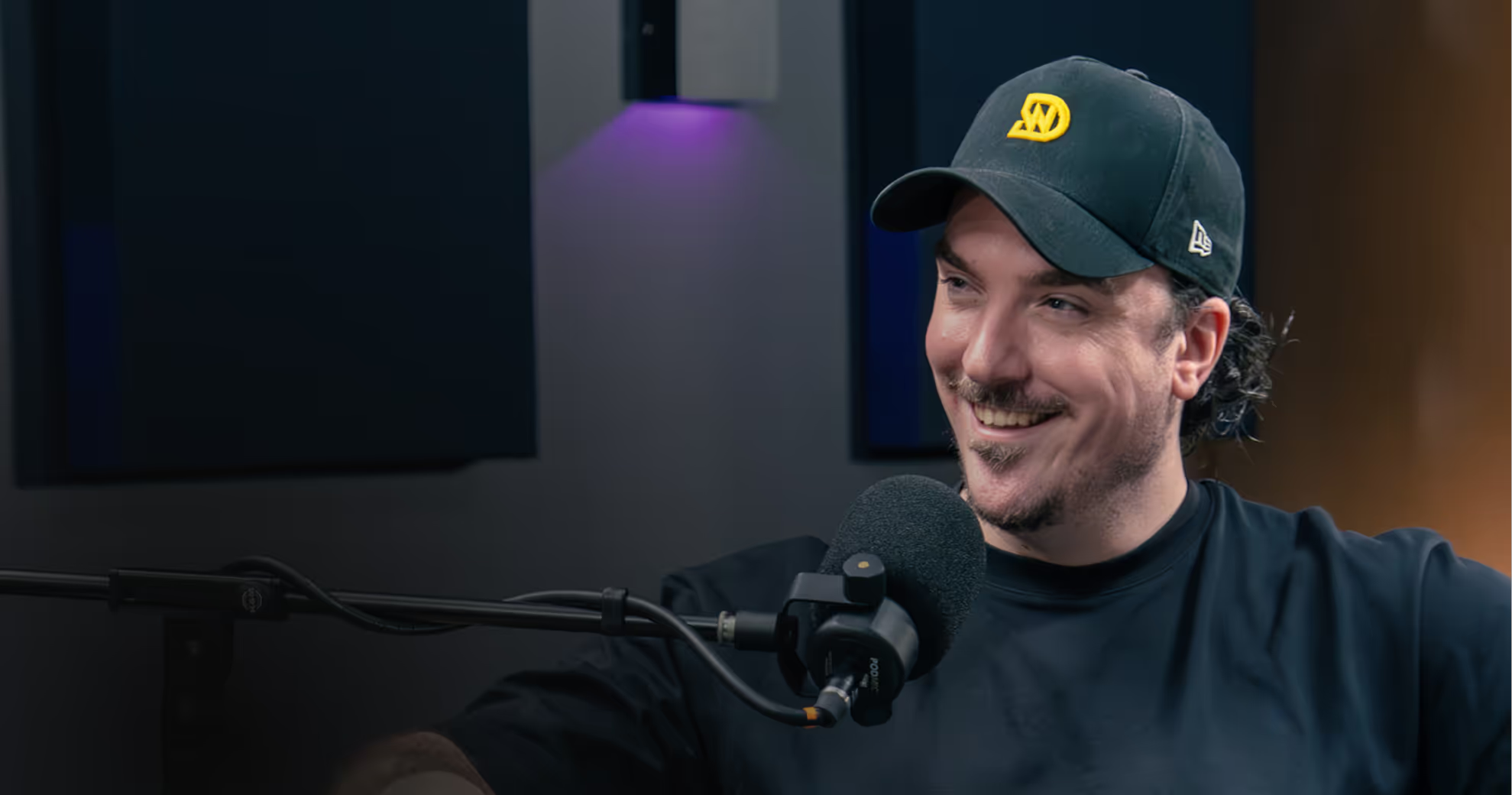
Work With Me
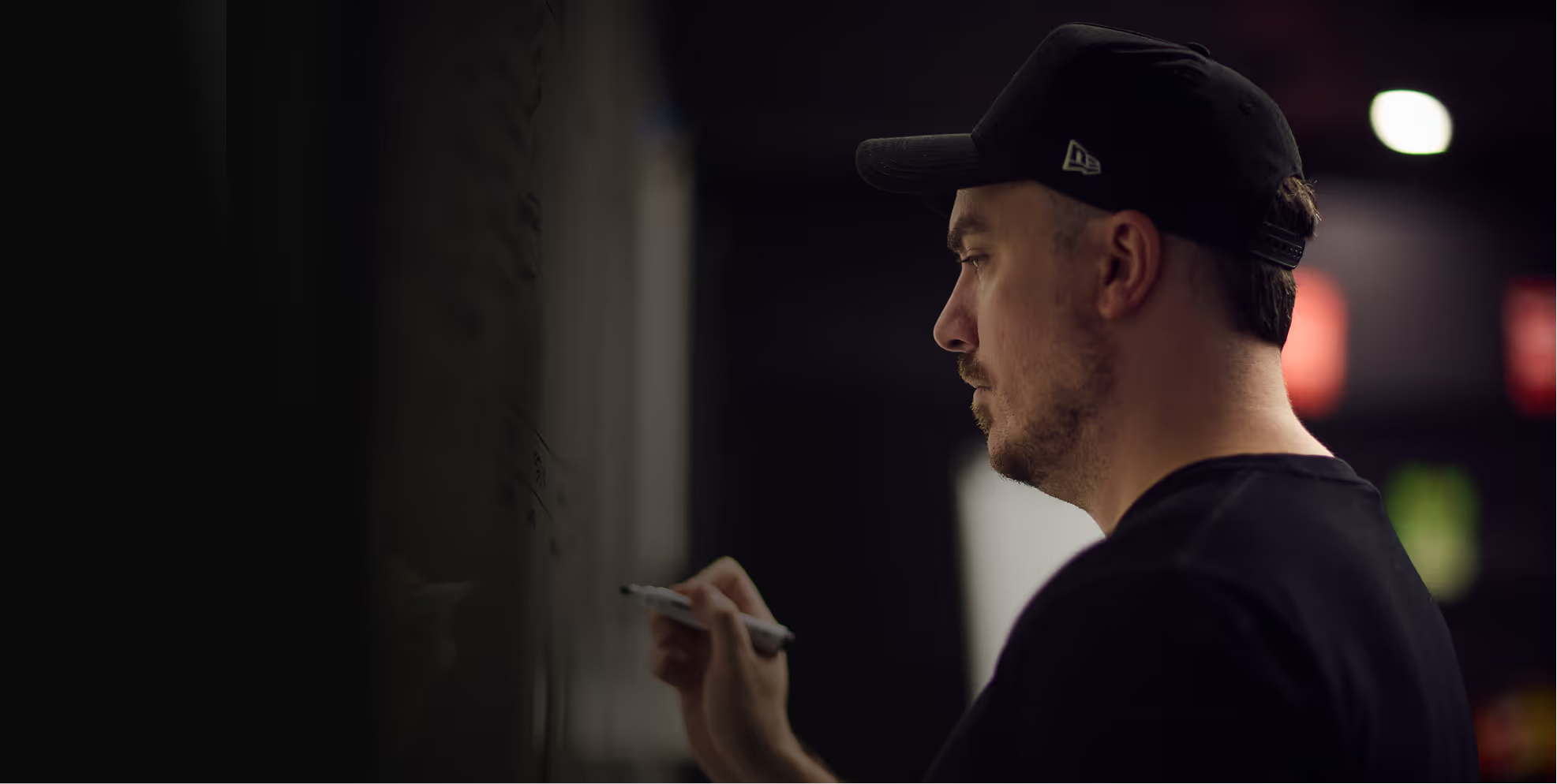
Enquire With Dain’s Team
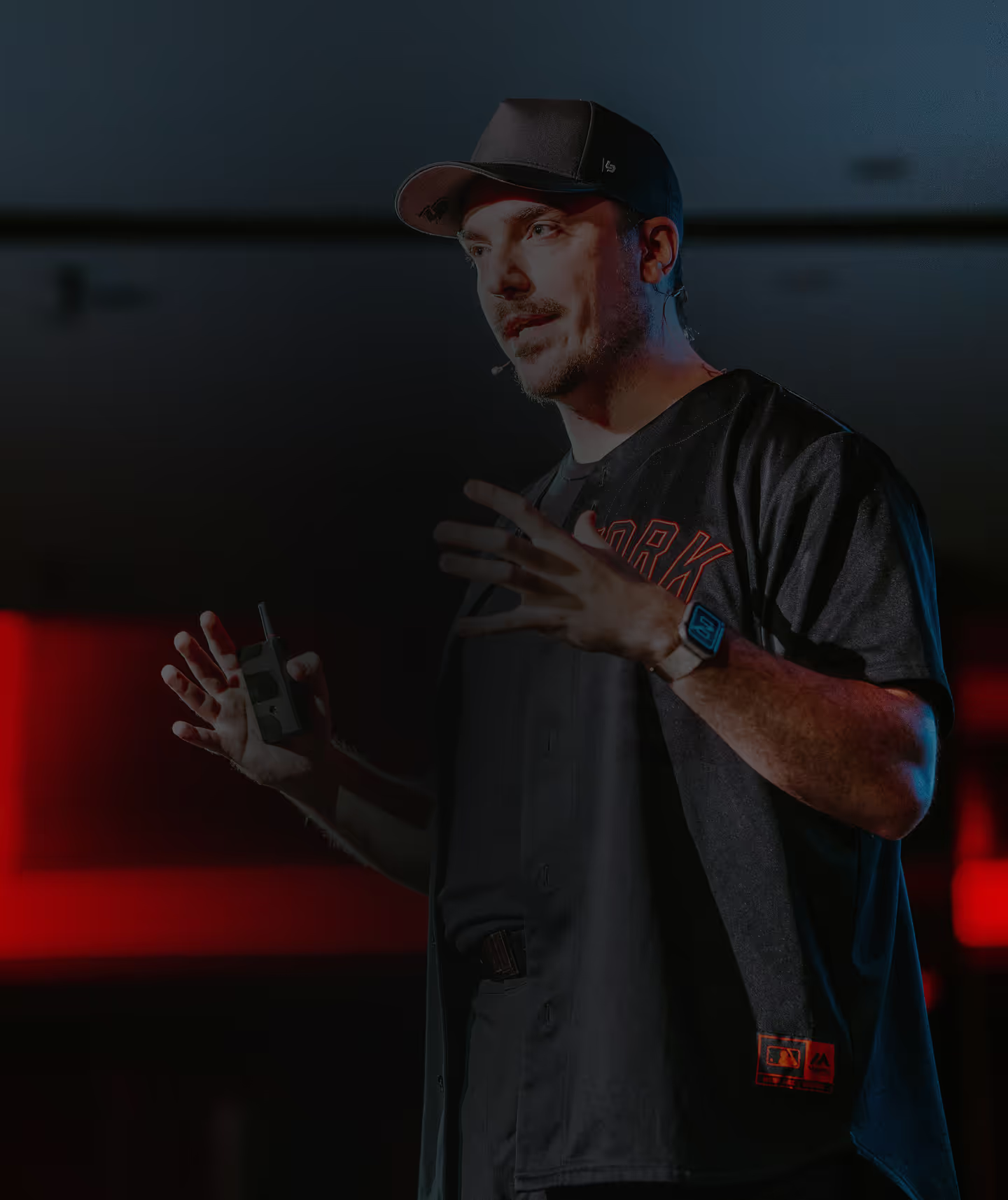
Enquire For Speaking

Let's Get You Branded
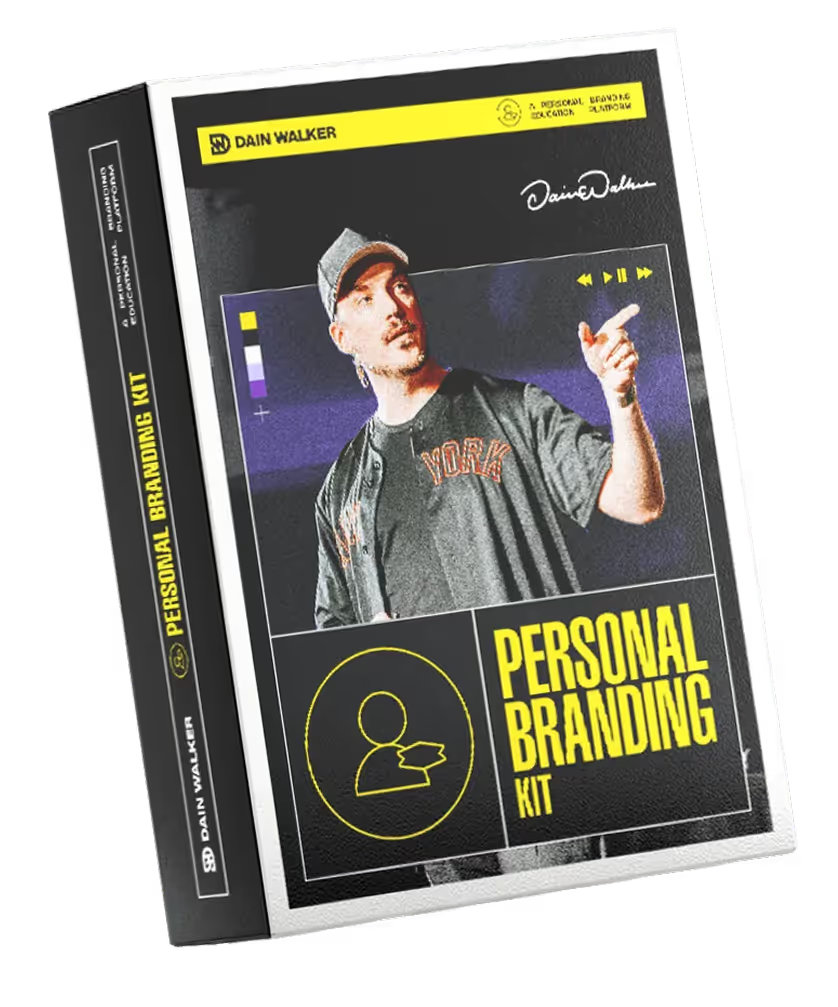
Apply to be a guest
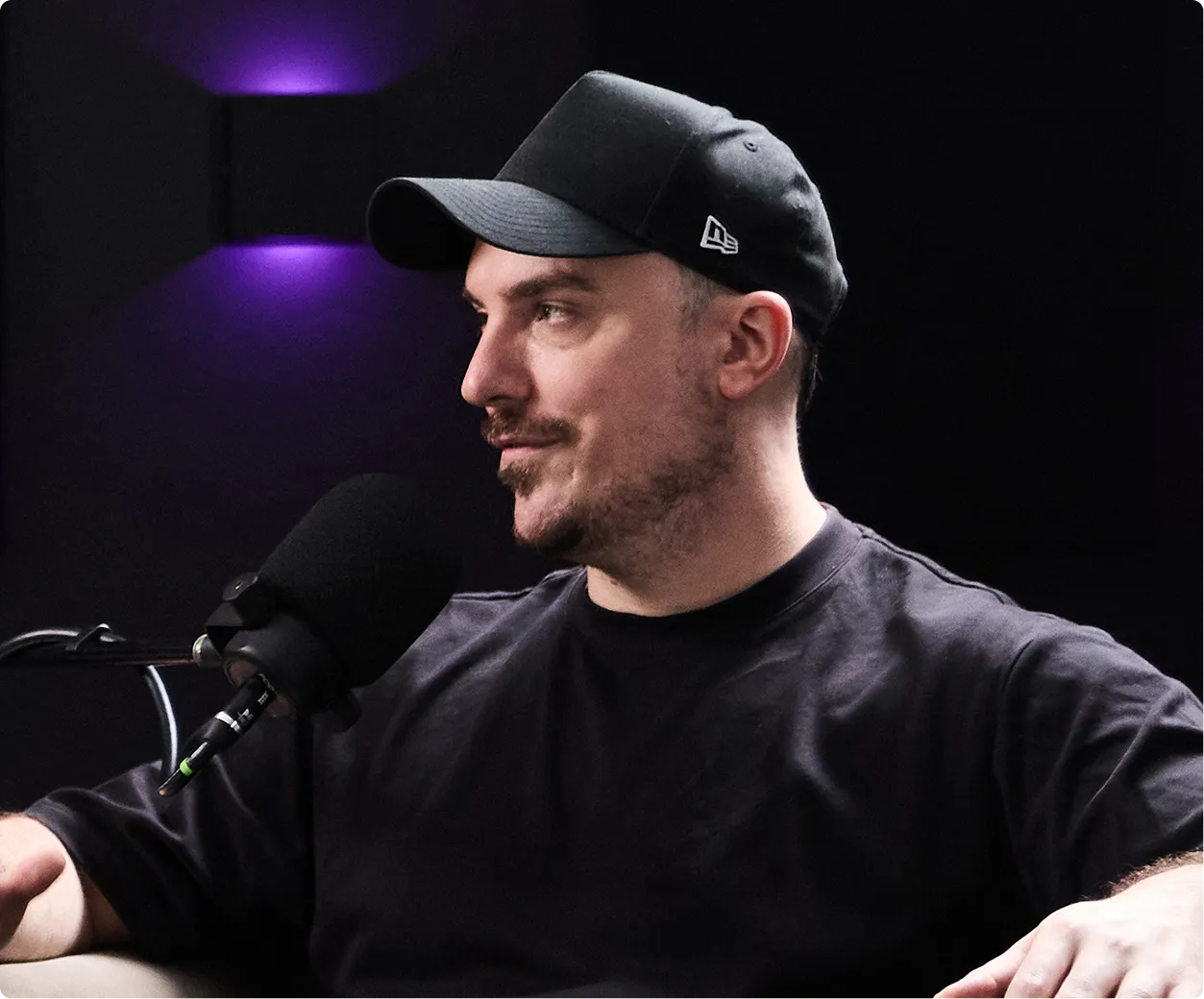
Dive into insights from industry leaders and experts.
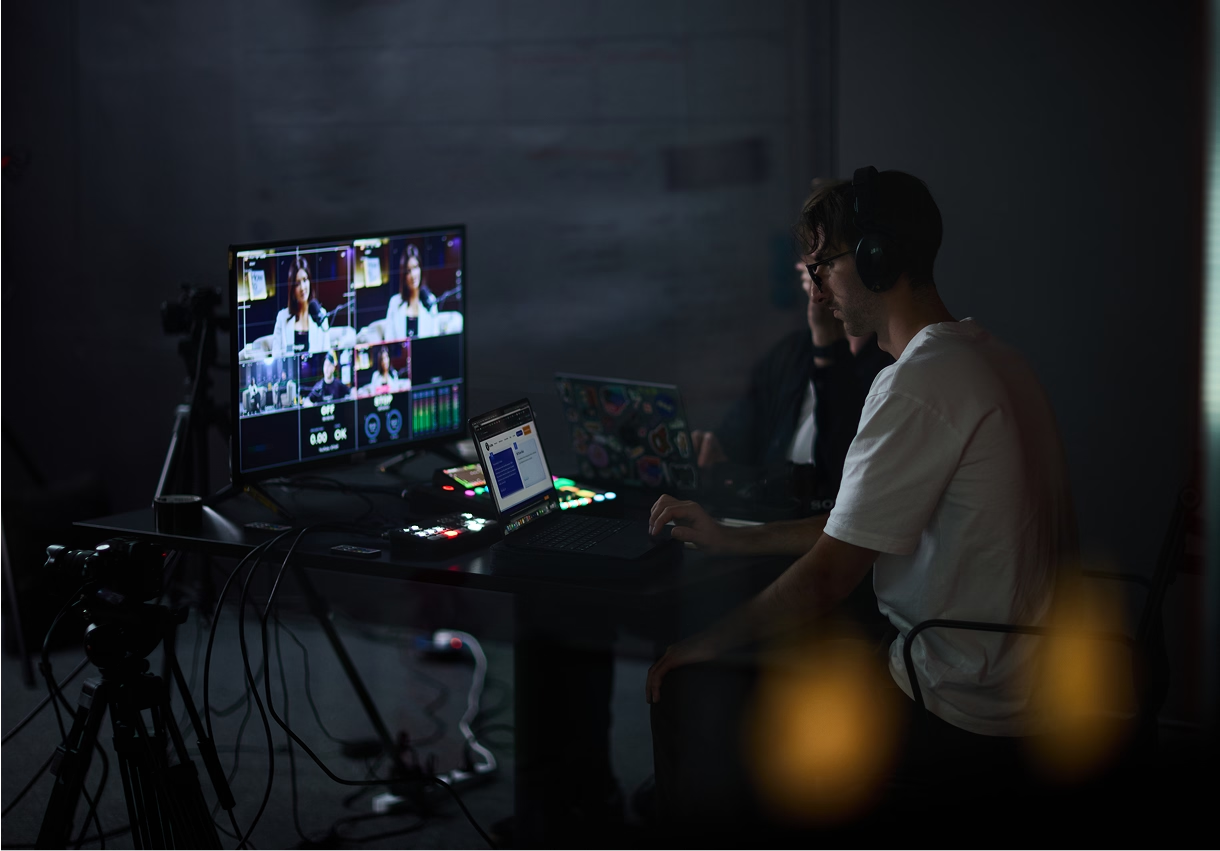
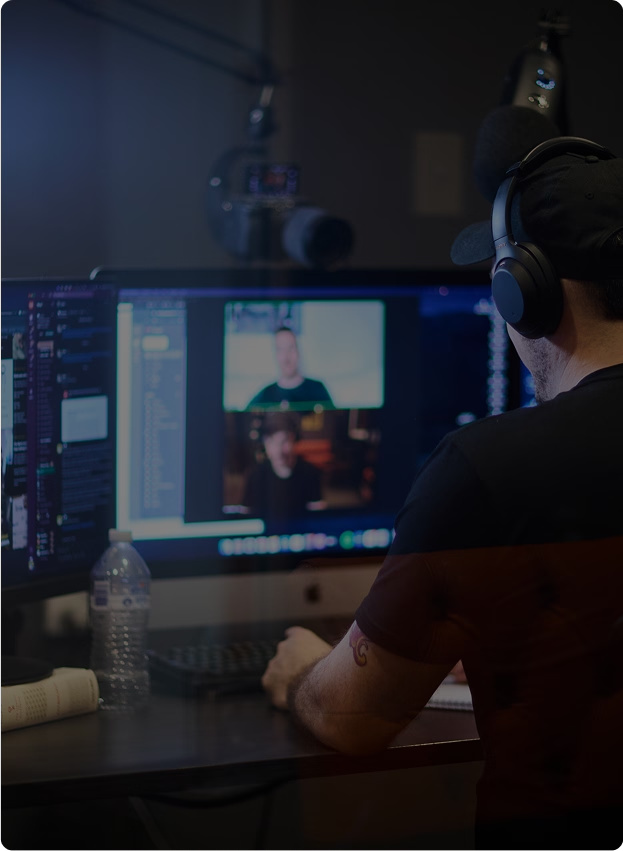
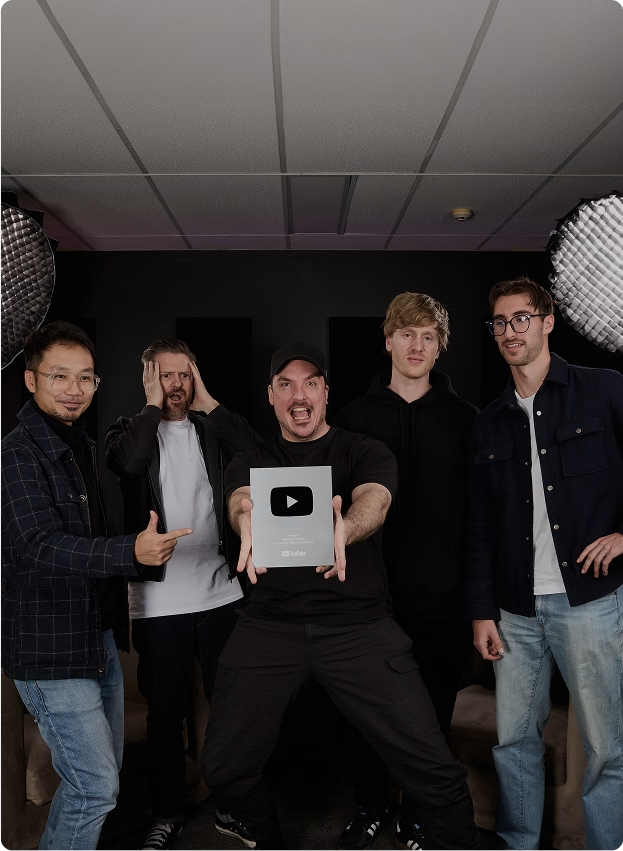
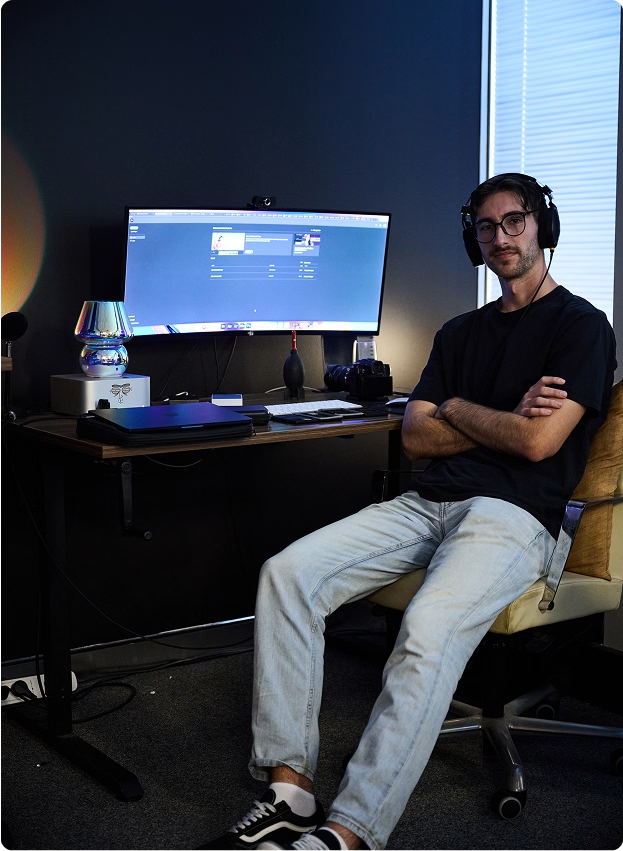
Stream now
Dive into expert advice and industry trends.
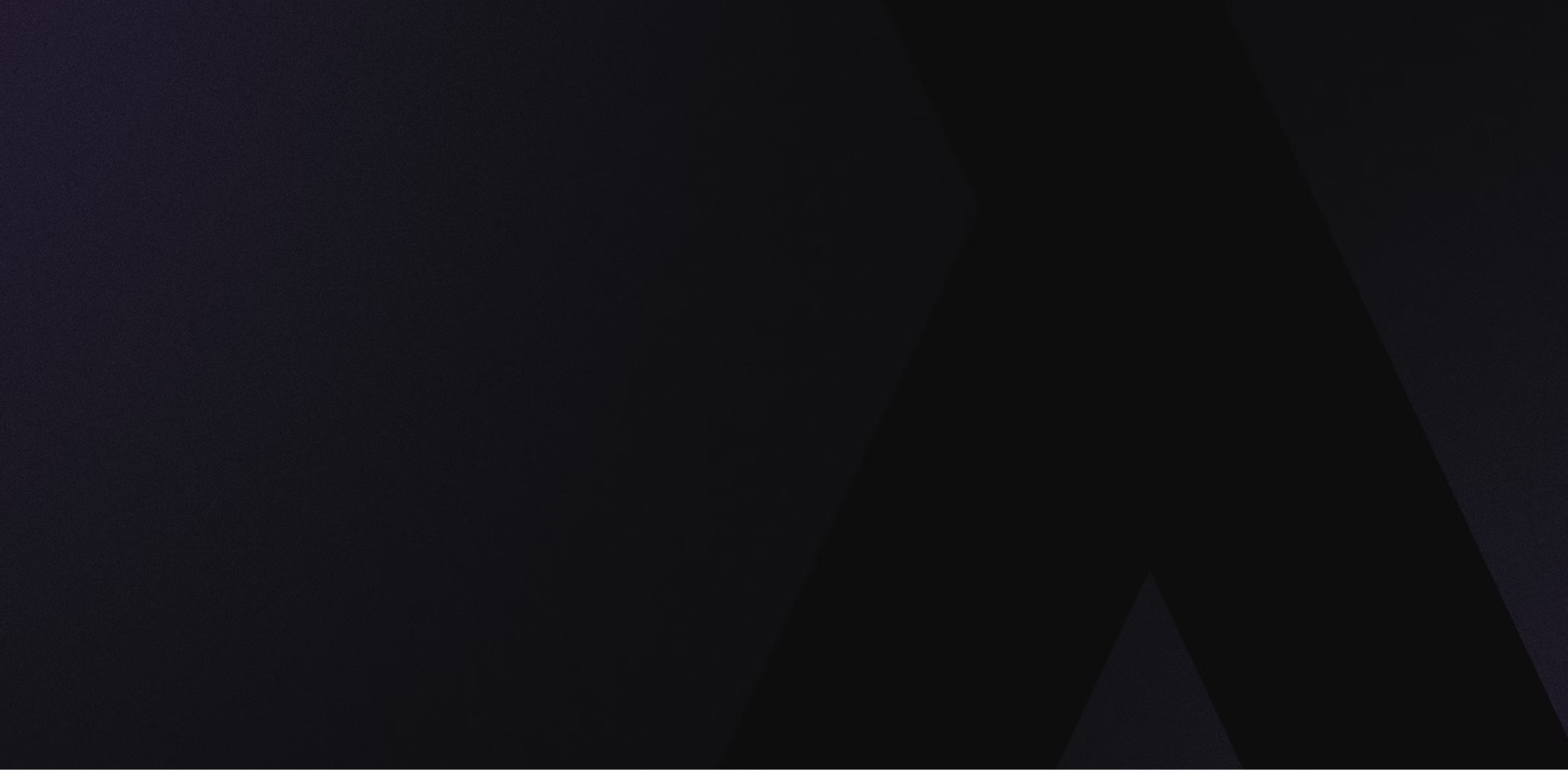

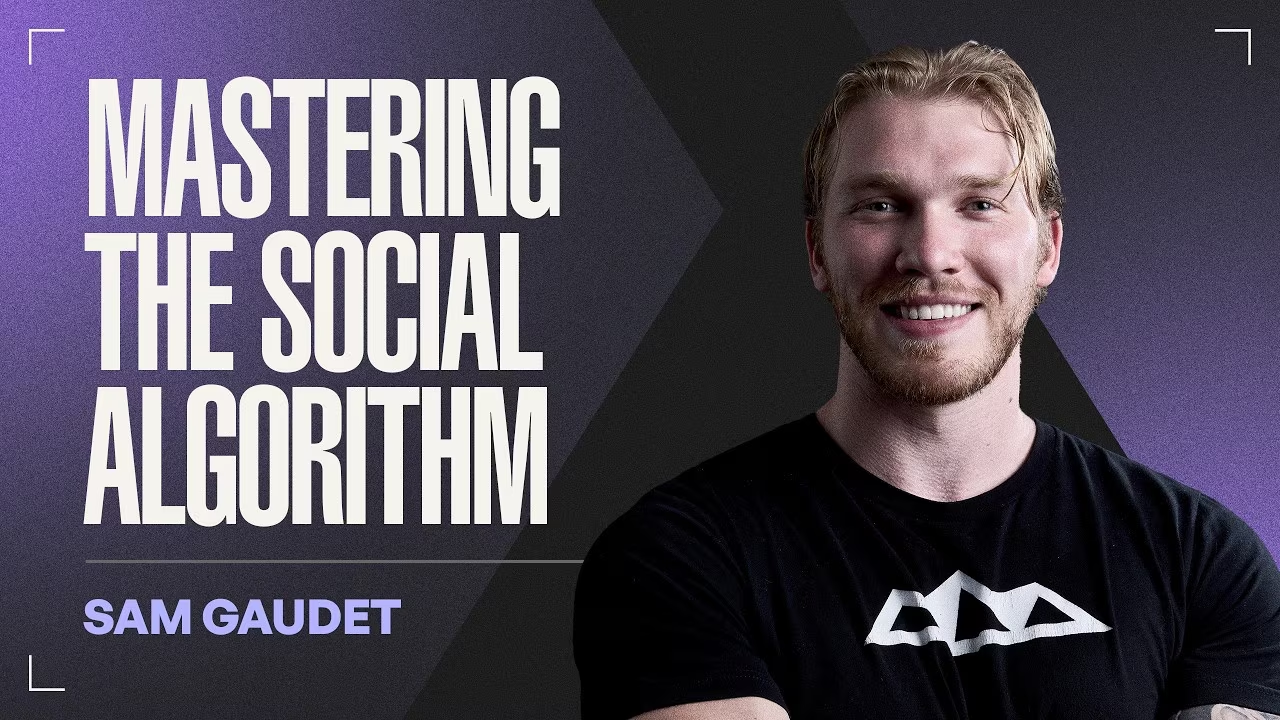
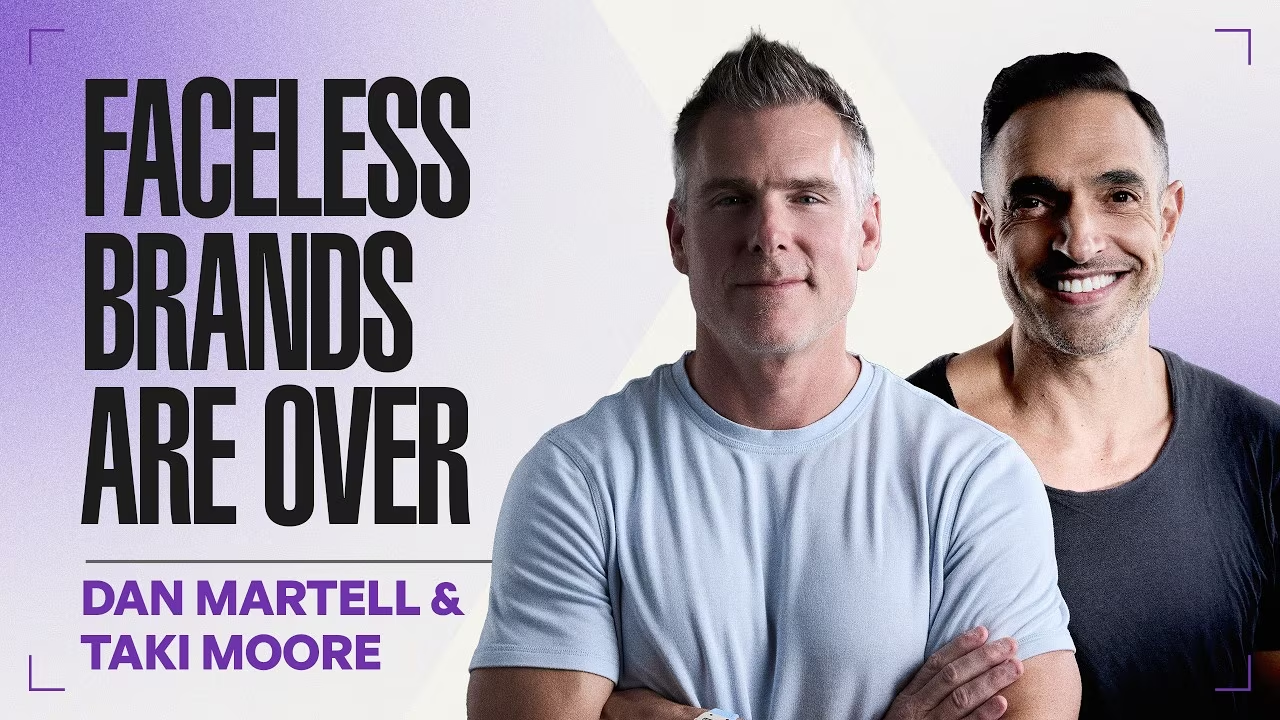
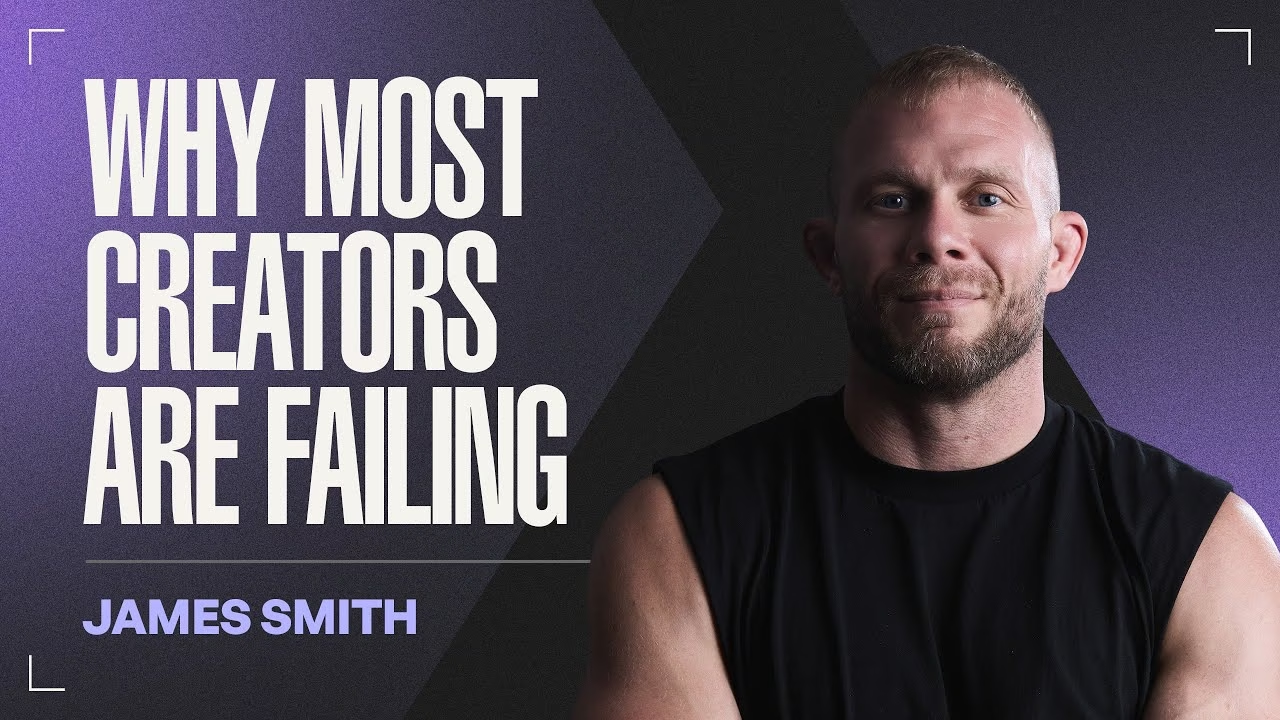
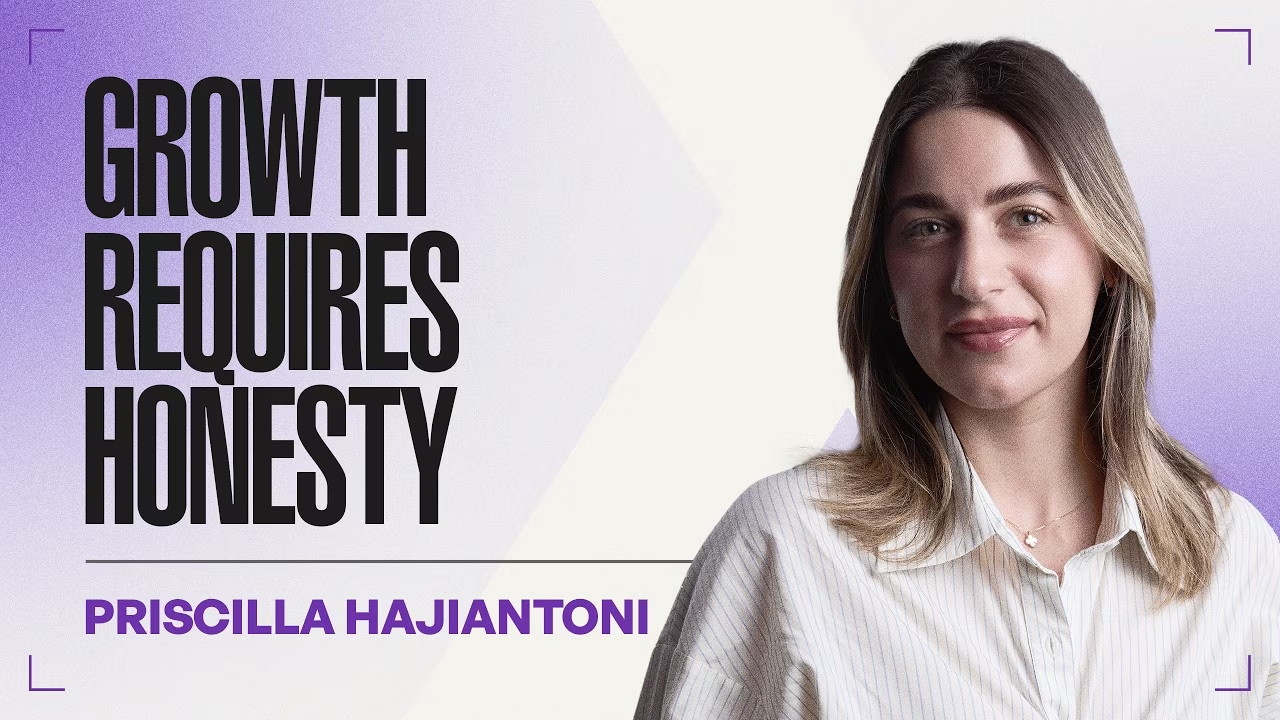
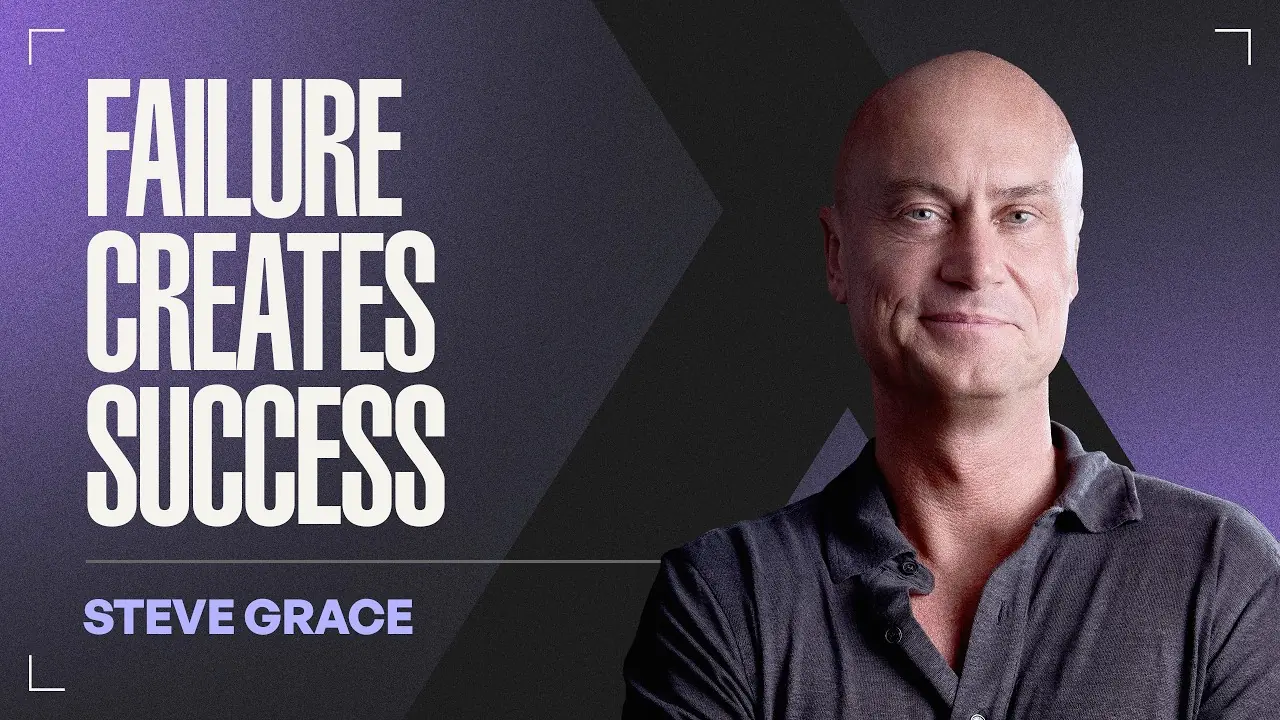
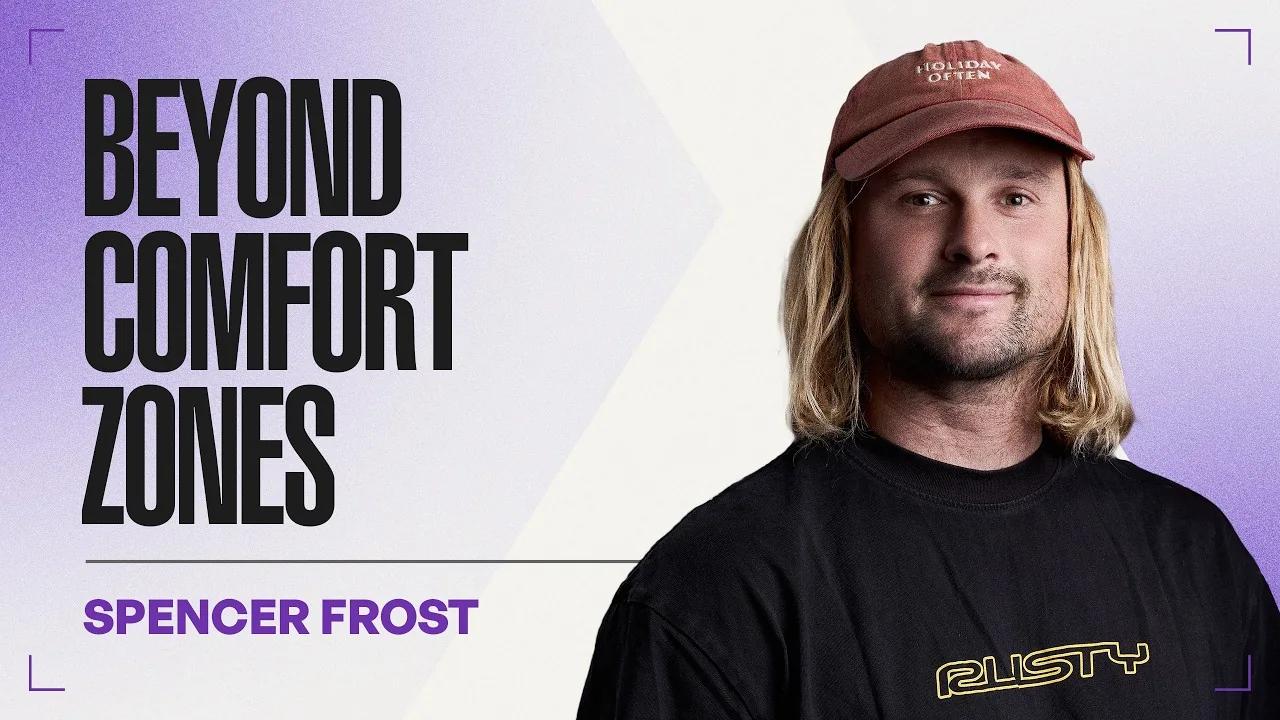
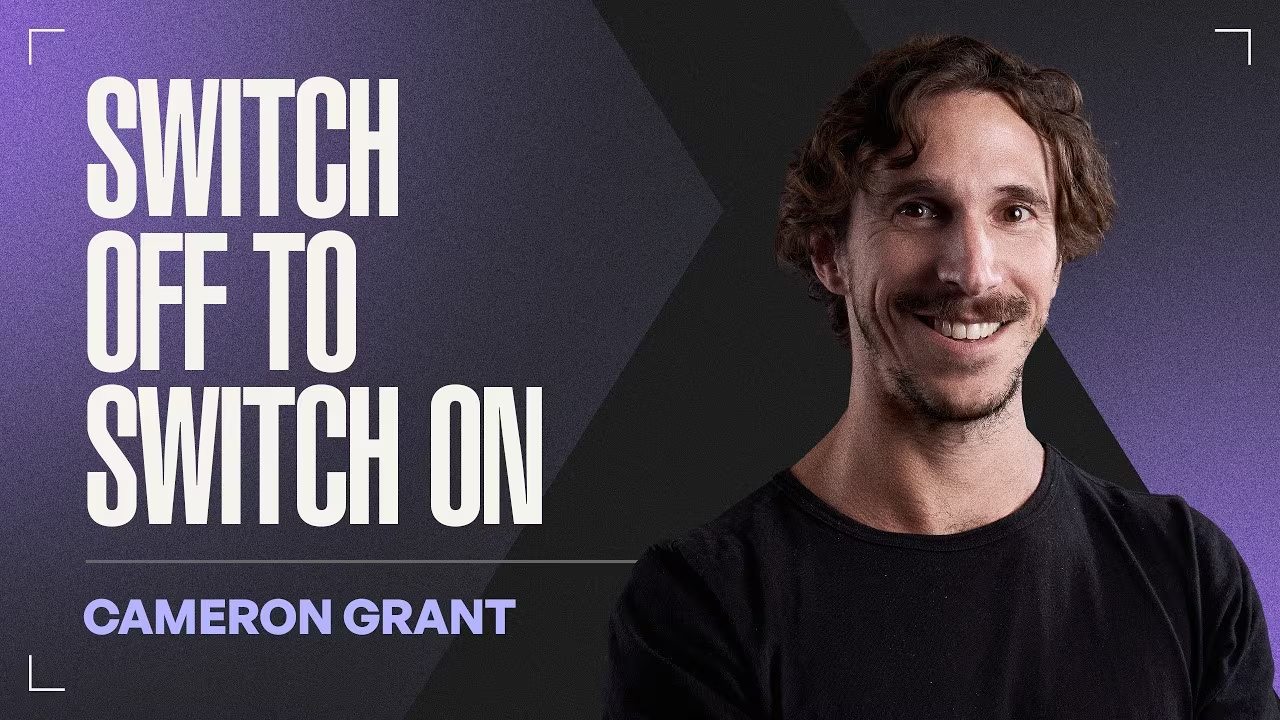
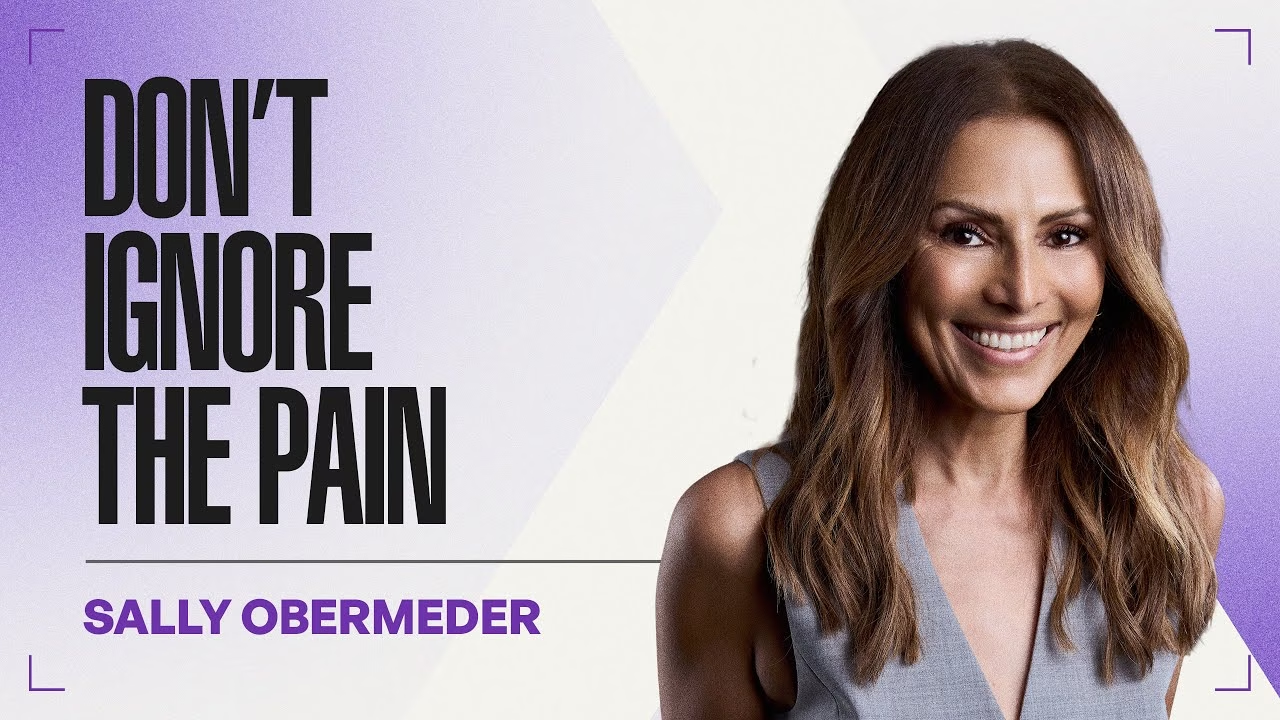
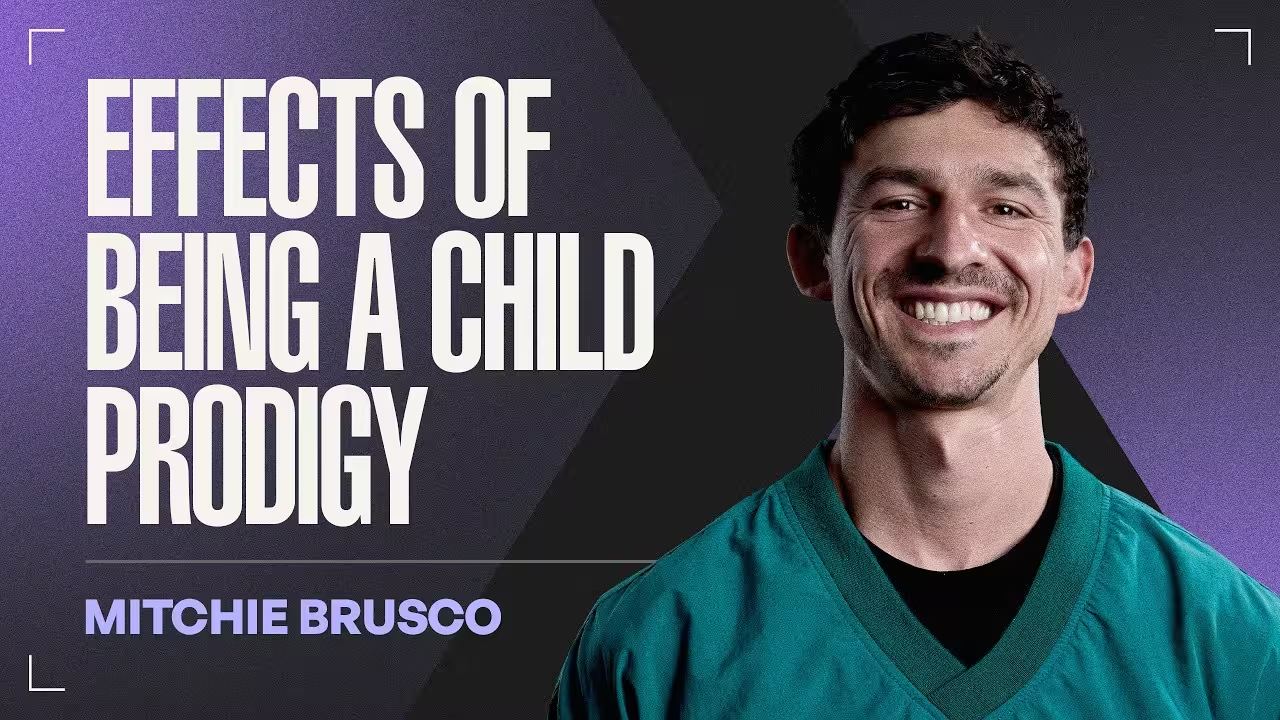
.avif)
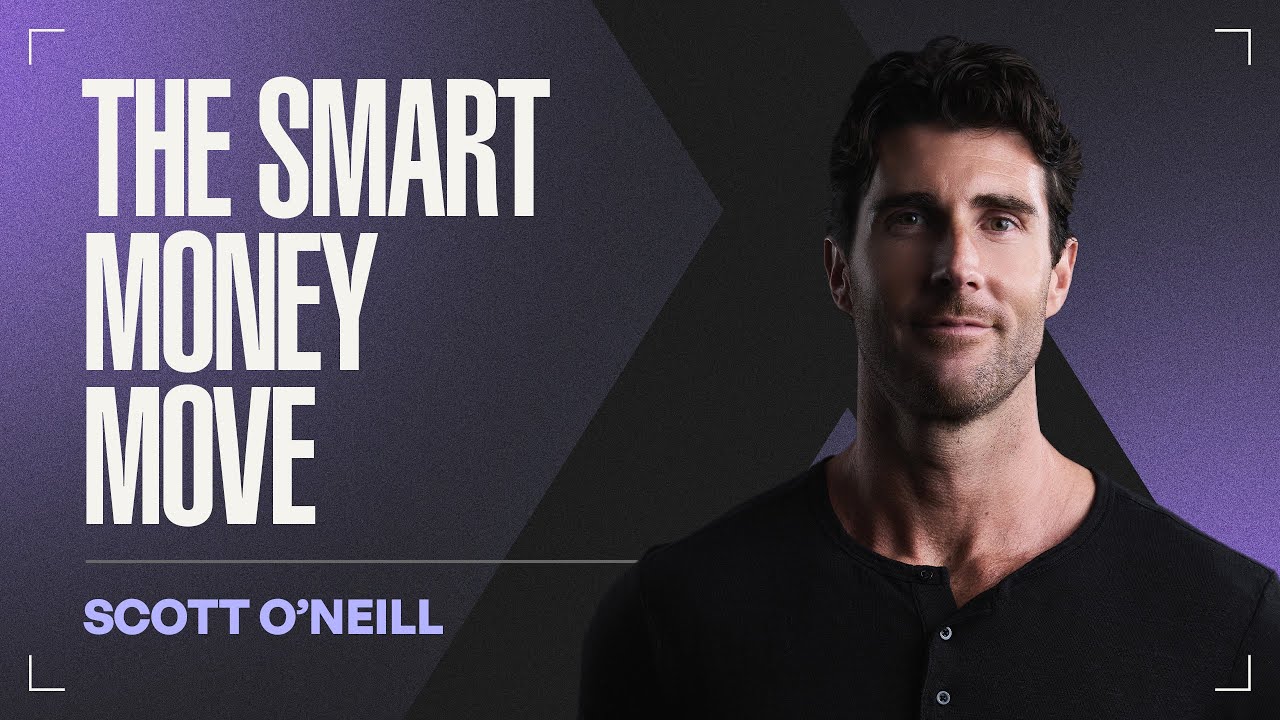
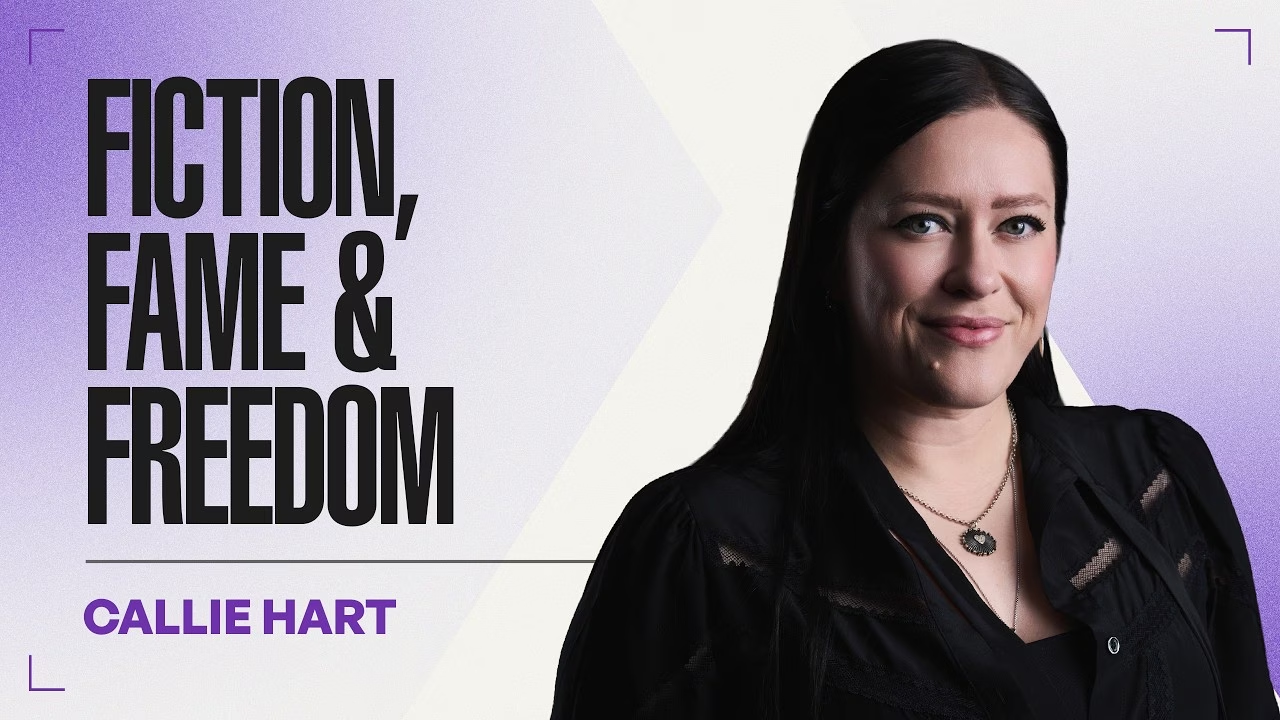

.avif)
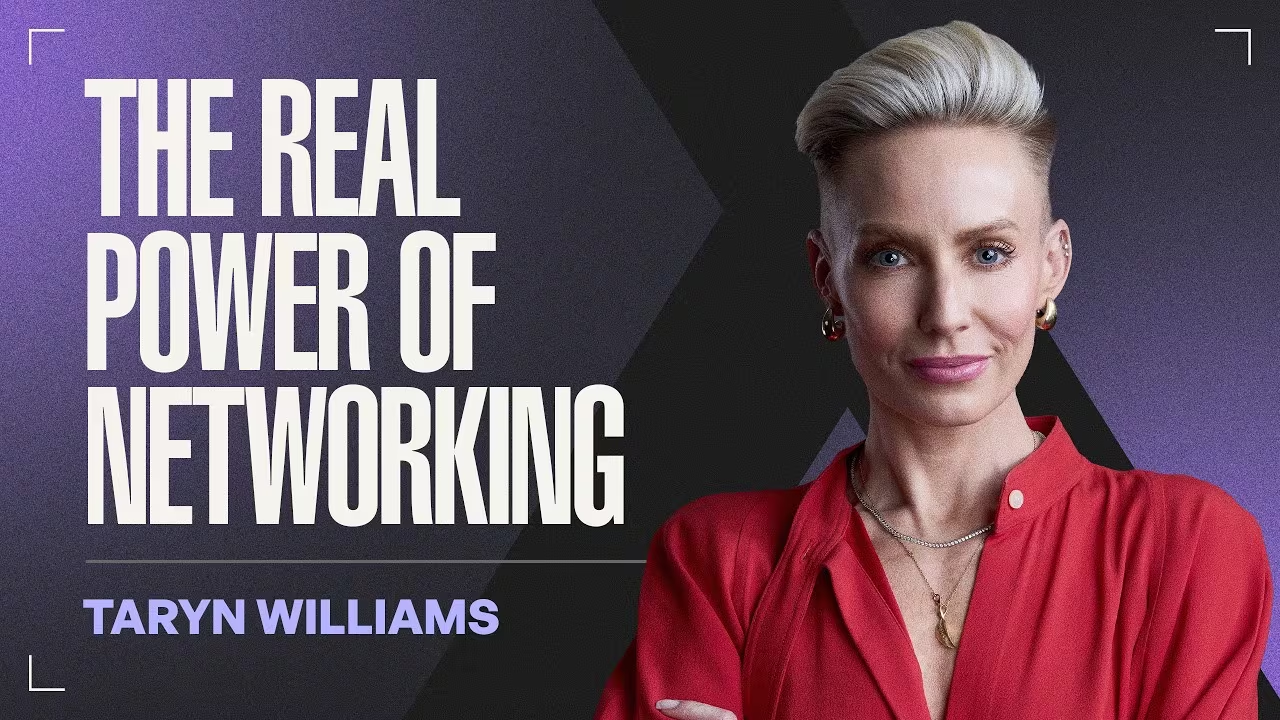

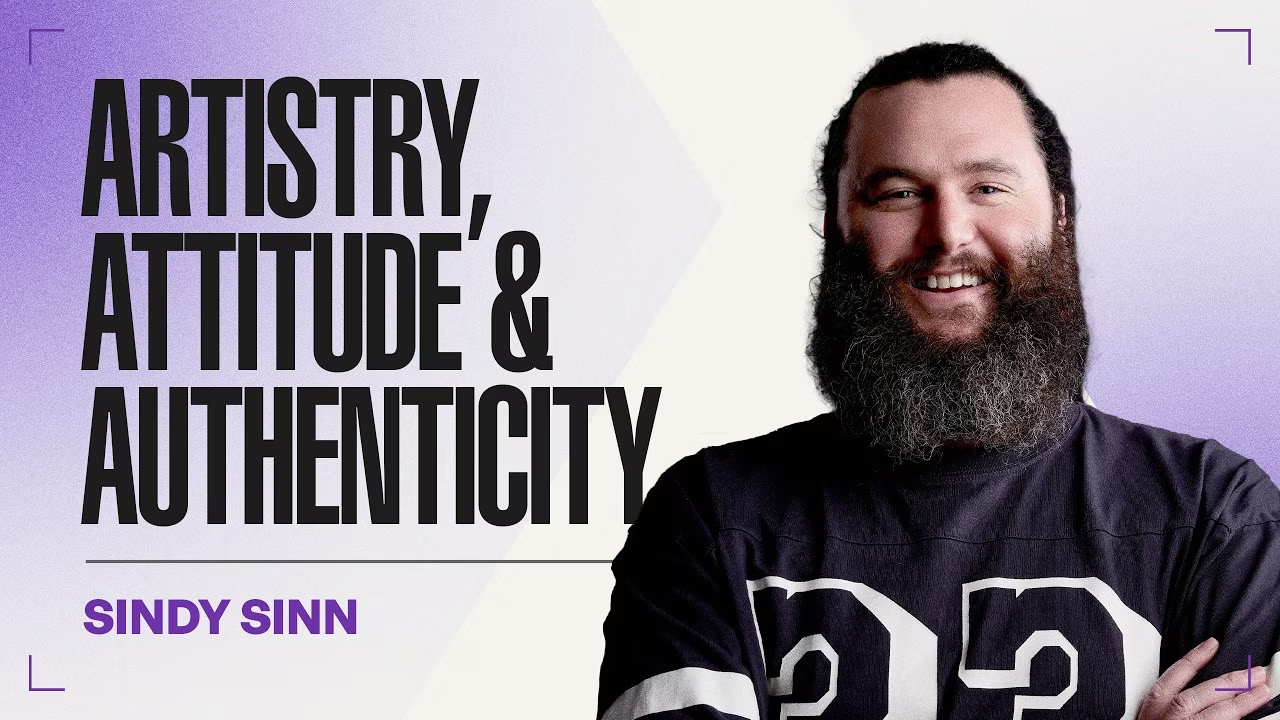
%20(1).avif)
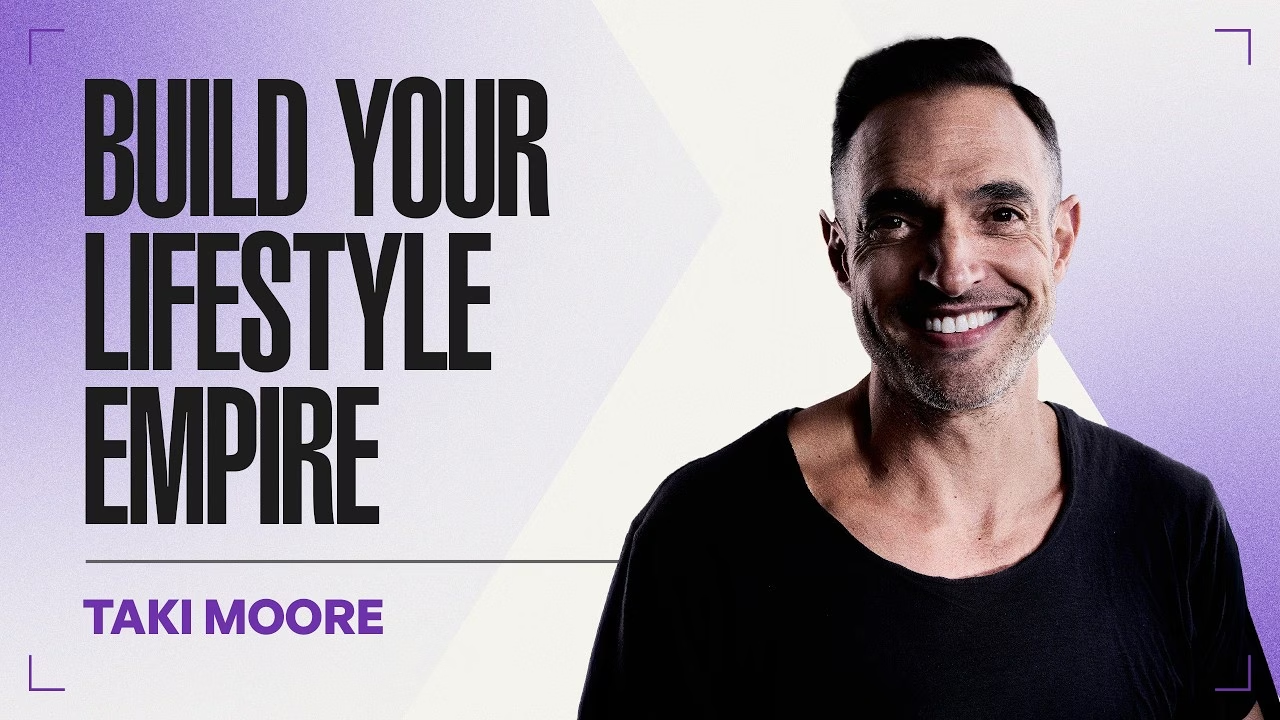
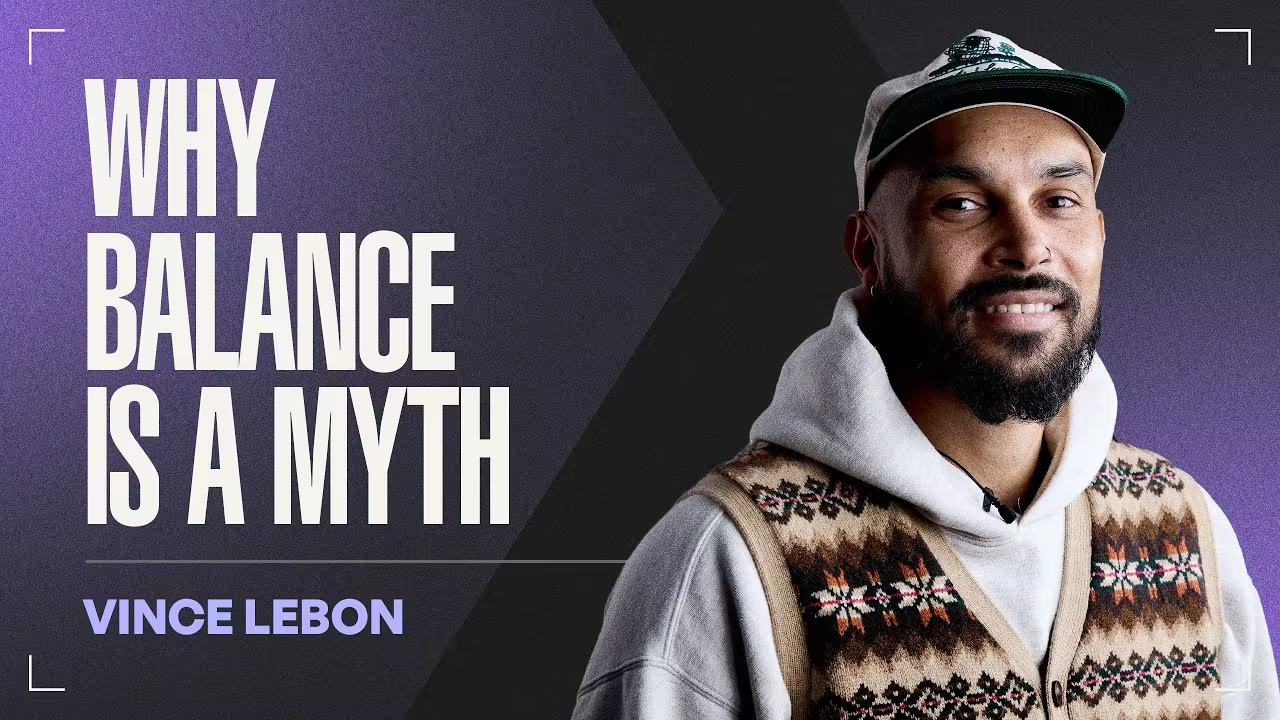
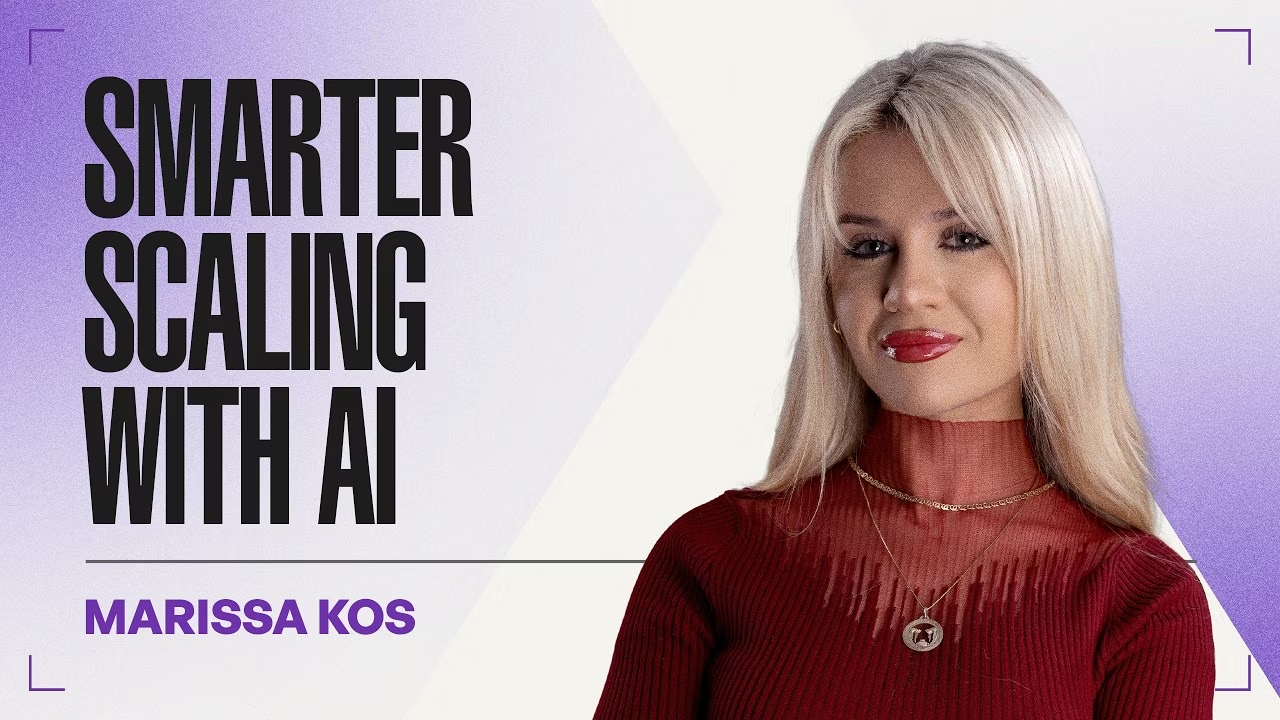
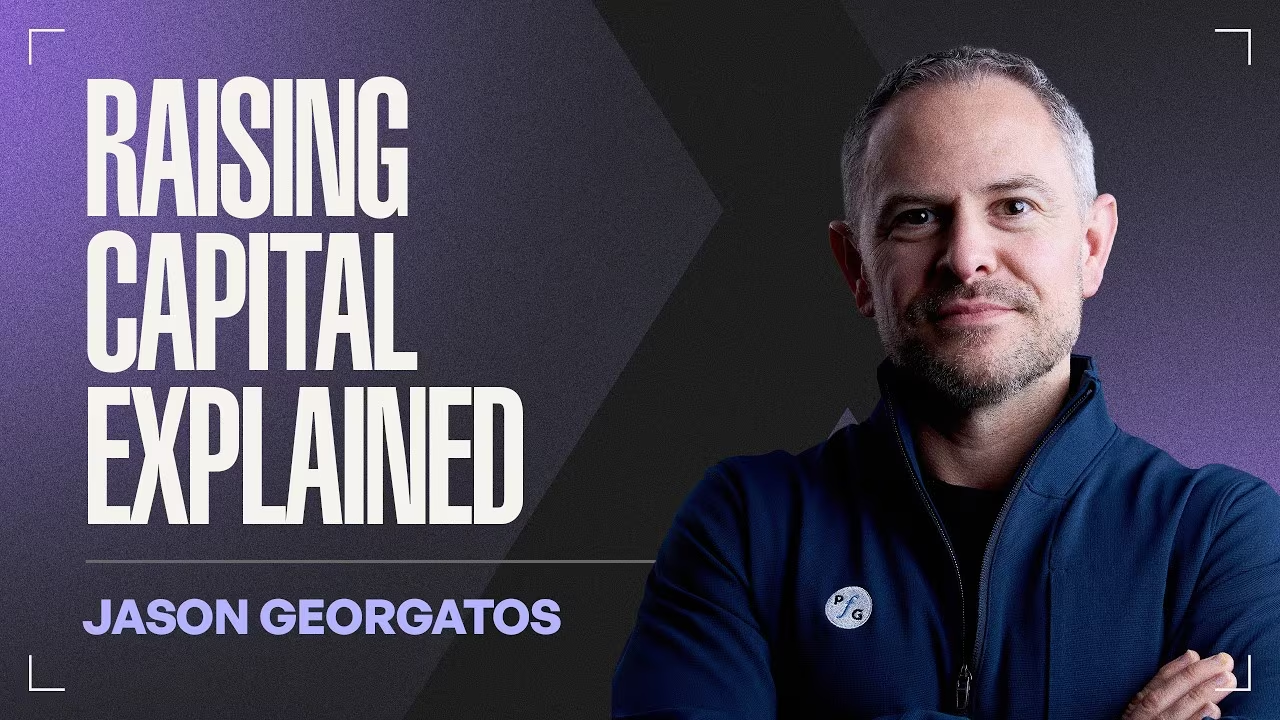
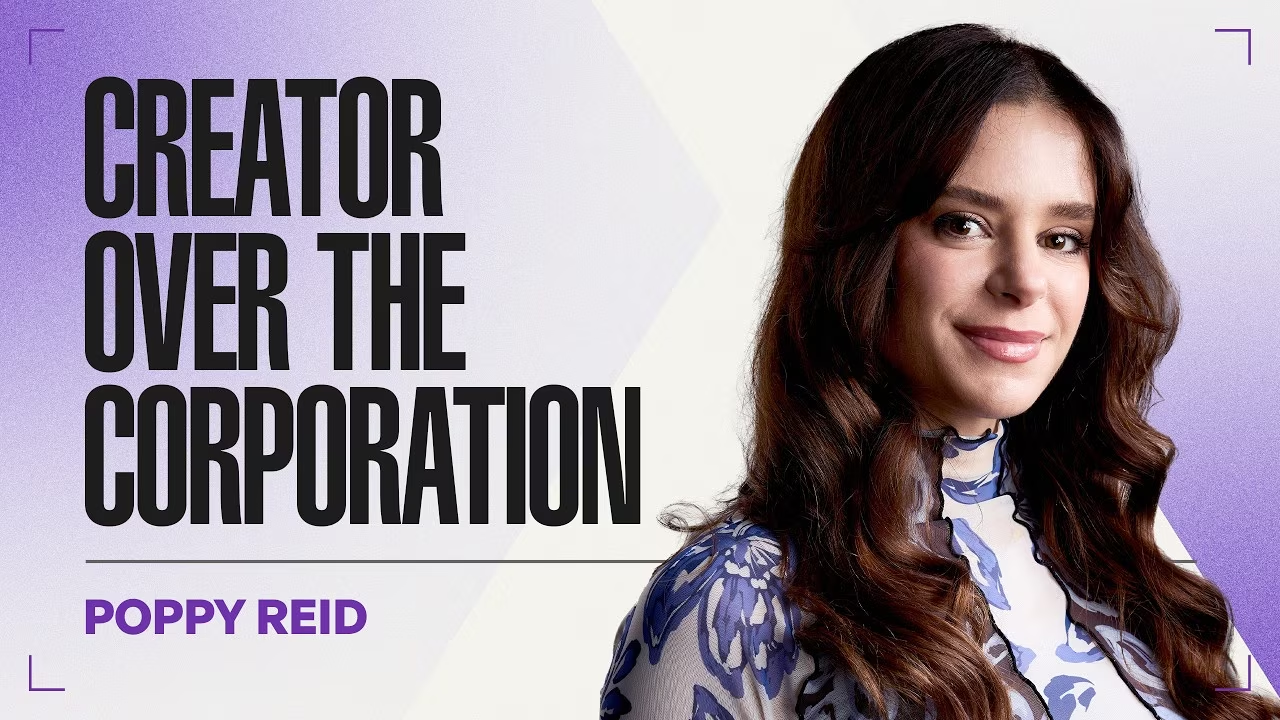
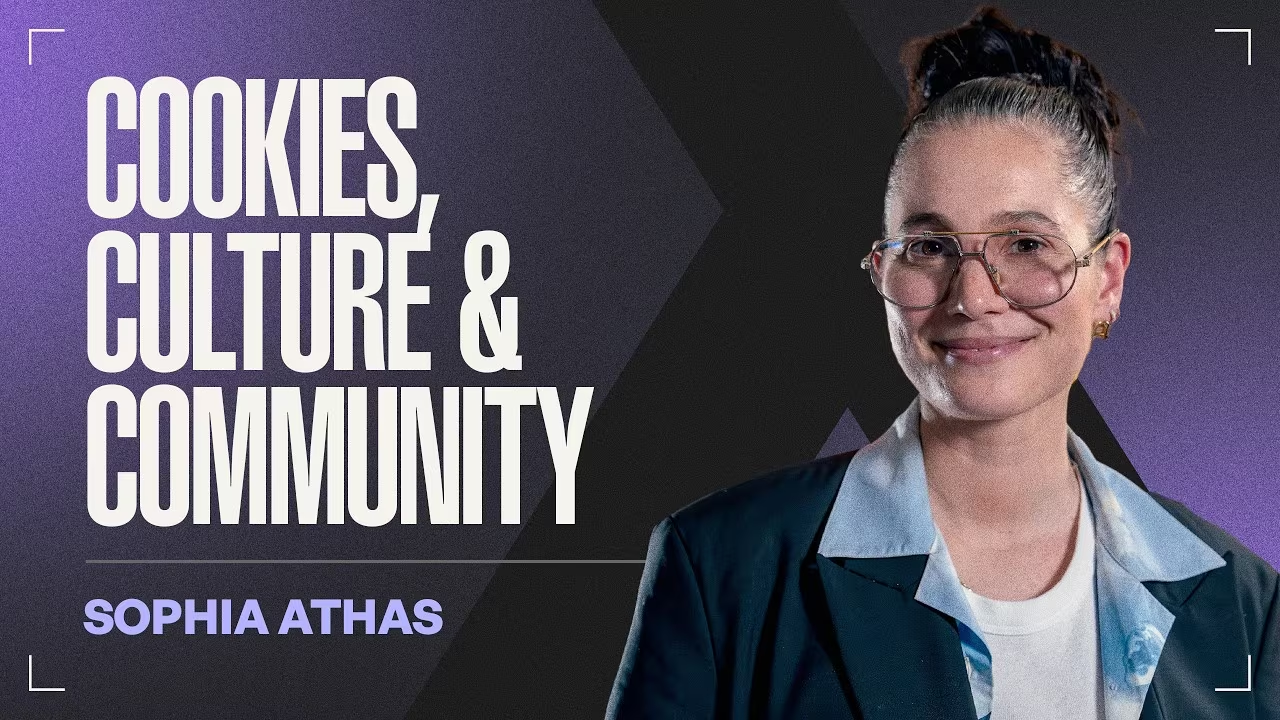

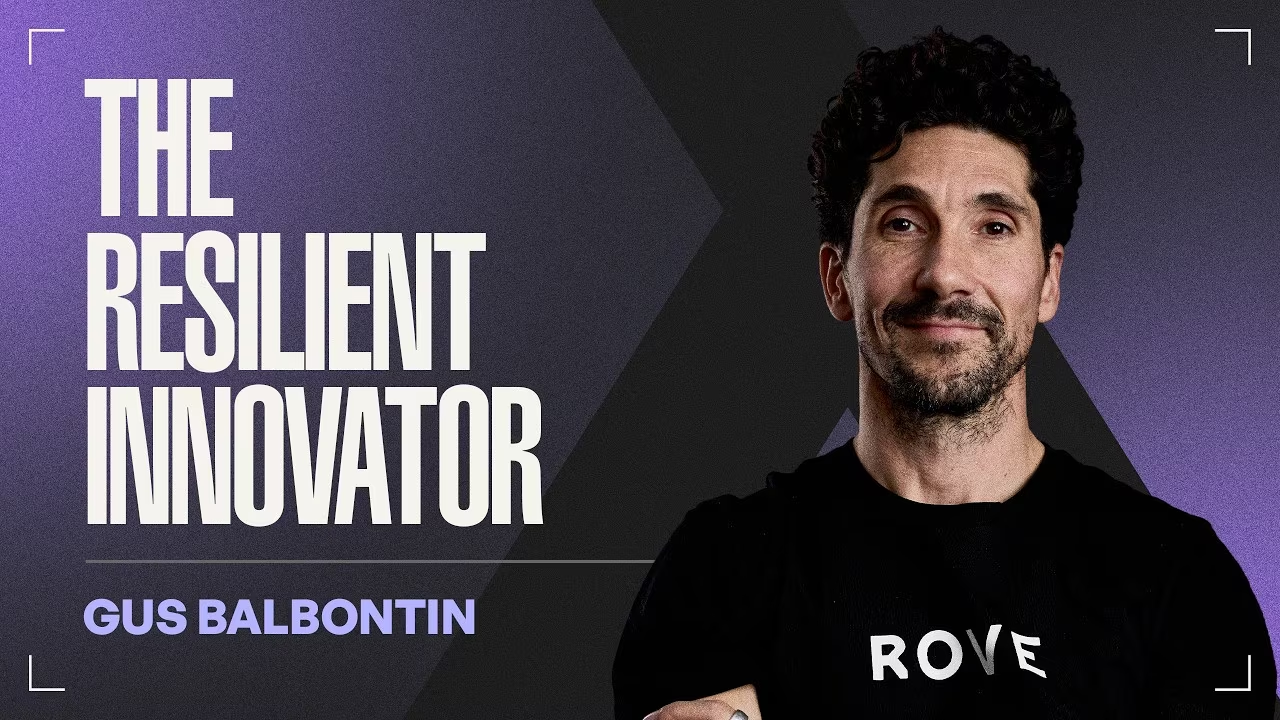
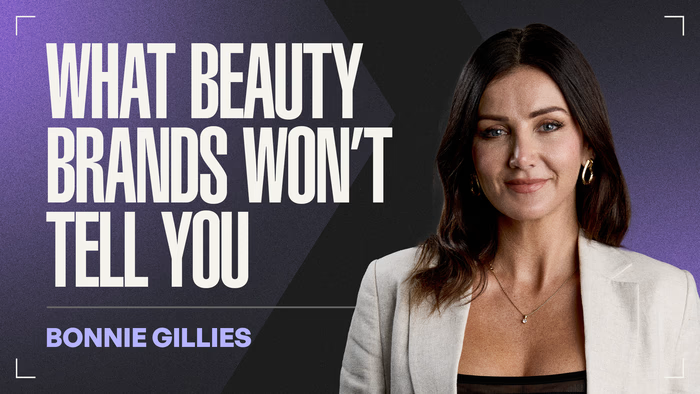


.avif)

